


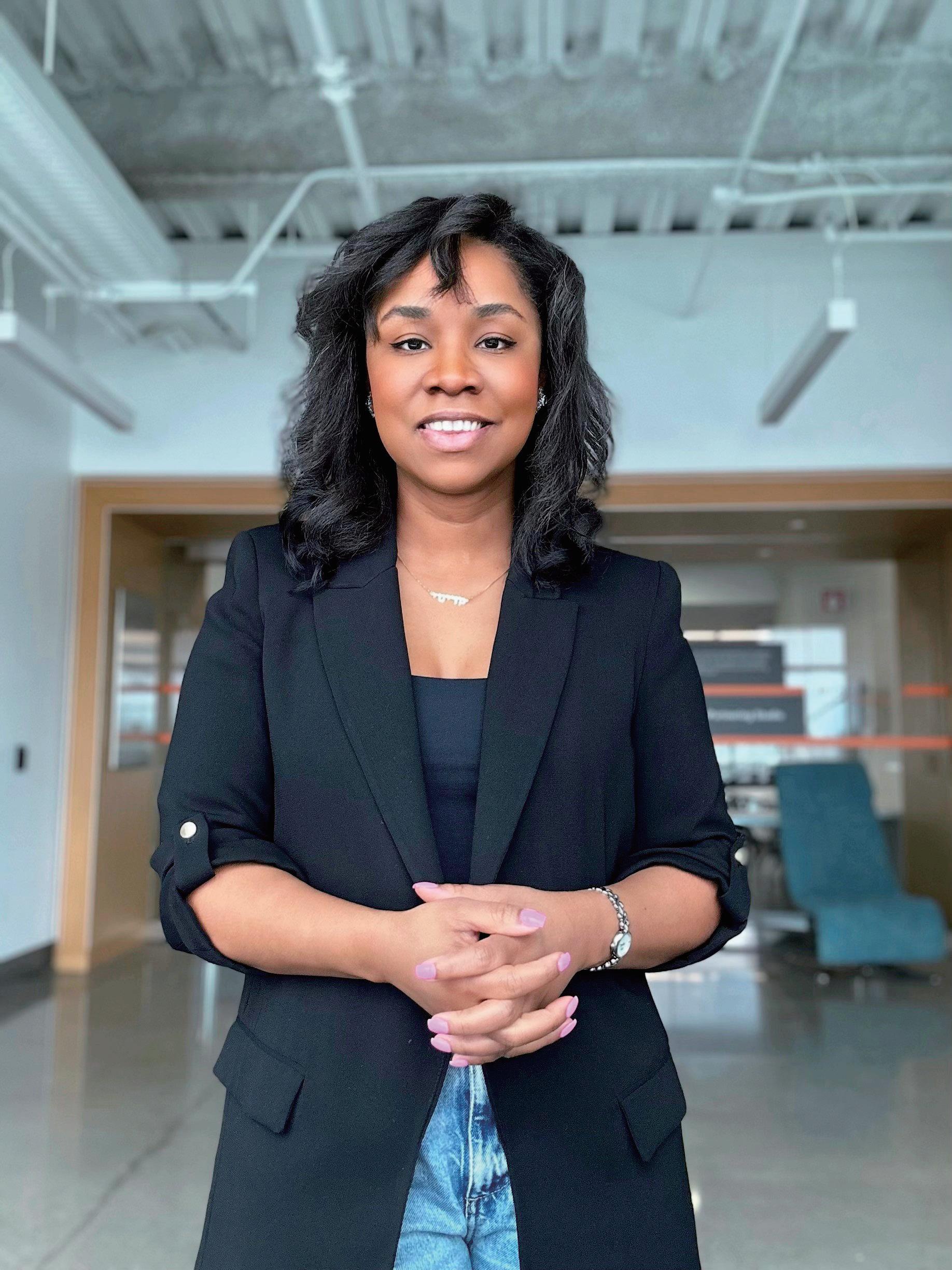








It is no surprise that neuroscientist Dr. KRISSY DOYLE-THOMAS is making a significant impact supporting individuals in educational and health settings. “Those two professions have resonated with me as a way of connecting authentically with people,” she says. See story on page 8. Photo contributed.
By ARNOLD A. AUGUSTE, Publisher/Senior Editor

ore than 100 Black community organizations will benefit from the first distribution of funds announced by The Foundation for Black Communities (FFBC). The announcement was made at a reception hosted by the Nia Centre for the Arts in their beautiful new building on Oakwood Avenue in the Little Jamaica neighbourhood in mid-May.
The FFBC, which was created in 2020, is a national, Black-led organization that was selected to administer the federal government’s $200 million “Black-led Philanthropic Endowment Fund dedicated to supporting Black-led, Black-focused and Black serving non-profit organizations and registered charities in Canada”.
At its event in May, the FFBC an -
nounced the disbursement of some $9 million through its Black Ideas Grant “which focuses on the diverse needs, self-determination and aspirations of Black communities”.
The grants, which are for one year, are split into three streams, the Core Stream ($40,000), the Catapult Stream ($100,000) and the Community Capital Stream ($250,000) to qualifying organizations. The FFBC states that further calls for proposals will be made annually.
The Philanthropic Endowment Fund was established by the federal Liberal government in recognition of the United Nations proclamation of the International Decade for People of African Descent (2015 to 2024). Earlier this year, Prime Minister Justin Trudeau “announced an extension until 2028 of the federal government’s efforts within the frameworks (of the Decade), to promote equality, empower Black Canadians and strengthen their leadership in business, social justice
and community”. (The Canadian government has also indicated its intention to support calls for a second Decade.)
Three government ministers of colour have been at the forefront of this initiative: Kamal Khera, Minister of Diversity, Inclusion and Persons with Disabilities; Marci Ien, Minister for Women and Gender Equality and Youth and Ahmed Hussen, Minister of International Development.
In her address at the event, Khera said: “Through the Black-led Philanthropic Endowment Fund, we have created a sustainable source of funding for Blackled not-for-profit organizations, ensuring that they have the means to address their priorities.
“The recipients of this first call for proposals will help in our fight against anti-Black racism and in improving the social and economic outcomes of Black communities across the country.”
Added Ien: “We know that anti-Black racism and systemic inequality have inter-
generational effects on Black communities across Canada. Through (the Fund), we will ensure Black-led organizations in Canada have the resources to tackle historical and systemic challenges faced by the community.
“This initiative is about empowering and uplifting Black communities to shape their future and continue their vital contributions to Canada.”
Hussen, who was out of the country, addressed the audience on video.
This was part of the largest, most comprehensive and most impactful series of investments that have ever been made by any Canadian government in the Black community.
I deliberately mentioned that the ministers leading this initiative were people of colour. It showed the value of having representation at the table where decisions are being made.
A comment from someone who was
By LINCOLN DEPRADINE
The Liberal Government of Prime Minister Justin Trudeau has provided $9.1 million in grants in ongoing efforts at dismantling anti-Black racism and to meet the needs for sustained funding within Black-led and focused non-profit organizations across Canada.
The money is being disbursed to 107 organizations under the “Black Ideas Grant (B.I.G): Bridge and Build” 2023/24 program.
It’s part of a $200 million “Black-led Philanthropic Endowment Fund” being administered by the Foundation for Black Communities (FFBC), which was founded in 2020 with the aim of ensuring that Black-serving organizations have the “vital resources needed to create lasting change”, and “can thrive and have agency in defining their own futures”.
The grant funding was announced at a Toronto event of Black community members, who were joined by federal MPs Kamal Khera and Marci Ien.
“This initiative is about empowering and uplifting Black communities to shape their future and continue their vital contributions to Canada,” said Ien, Minister for Women and Gender Equality and Youth. “We will ensure Black-led organizations in Canada have the resources to tackle historical and systemic challenges faced by the community.”
FFBC co-chair Liban Abokor, who was one of the speakers at the event at the Nia Centre For the Arts on Oakwood Avenue, told Share that of the 107 projects to be funded, about 50 are in Ontario.
“We’re incredibly excited about funding projects that are really going to make a meaningful impact in our community. Projects range from food insecurity to
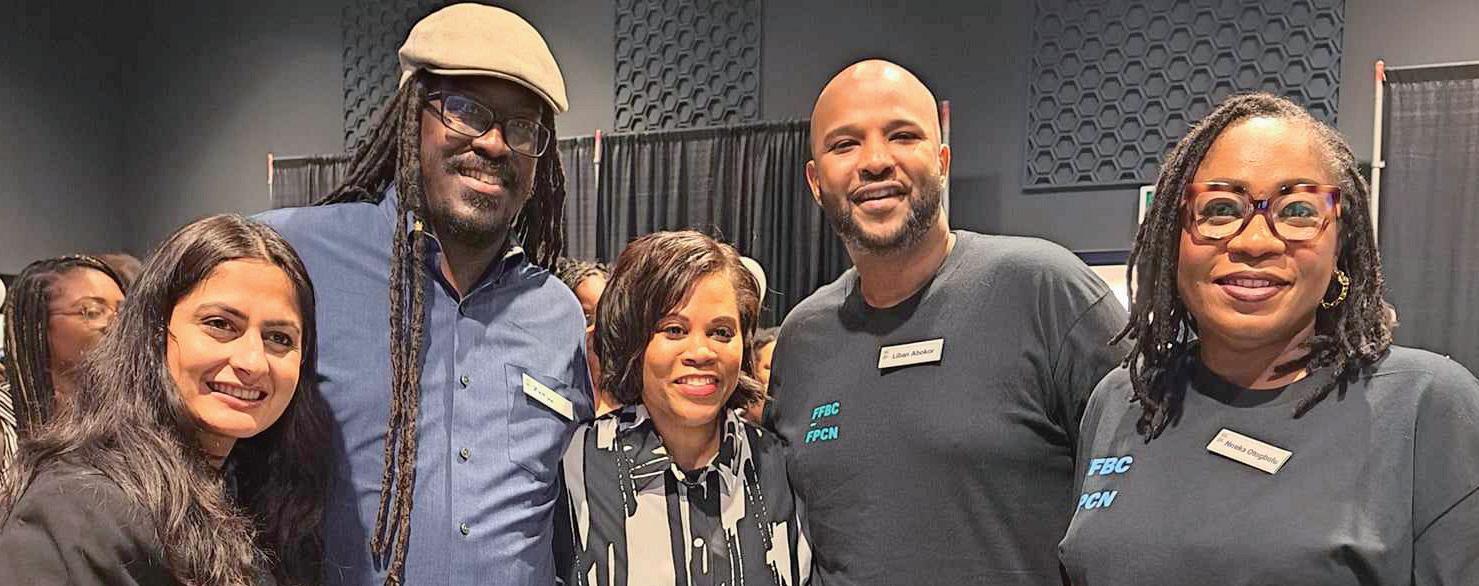
housing, to employment, to investing in women and youth. The projects we’re investing in are really a response to what the community needed and told us that they want to see,” Abokor said in an interview.
The federal government, over the last several years, has invested in various programs to assist racialized groups, including members of the African Canadian community.
According to the Trudeau government, the investments include a “commitment to help Black communities in Canada reach their full potential”.
Since 2019, the government has also pumped more than $175 million in the “Supporting Black Canadian Communities Initiative” and has pledged nearly $100
million to Canada’s Anti-Racism Strategy.
In the 2021 budget, the government allocated up to $200 million to establish a Black-led “Philanthropic Endowment Fund”
The FFBC, a philanthropic foundation, is responsible for managing the assets of the contributed funds to create a longterm, self-sustaining source of funding for Black community organizations.
The Liberal administration has also just launched its 2024-2028 anti-racism strategy titled, “Changing Systems, Transforming Lives”. The strategy represents a “more holistic approach to tackling systemic racism and discrimination”, which “remains an unacceptable reality for far too many people in Canada”, the
government said.
Among the priority areas of the strategy are “promoting economic, social and cultural empowerment”, and advancing racial equity in immigration, health and housing systems”.
“We want the federal government to reflect the Canada it serves, because the more voices and perspectives we have at the table, the better the decision making,” Prime Minister Trudeau said.
“With Canada’s ‘Anti-Racism Strategy: Changing Systems, Transforming Lives, 2024-2028’ , we’re putting forward an ambitious, comprehensive plan to make Canada more diverse, inclusive and prosperous. That means encouraging voices
By LINCOLN DEPRADINE
Veteran
playwright
Marcia Brown wrote the play “I Need to Know My Father” which first appeared on stage to live audiences in 2011. The response was “overwhelming” to what Brown describes as “a loveable play”.
“It went on a series of runs; a number of churches used it as a fundraiser. We did it on a cruise in 2011 and also in 2016,” Brown said in an interview with Share
As Father’s Day ap -

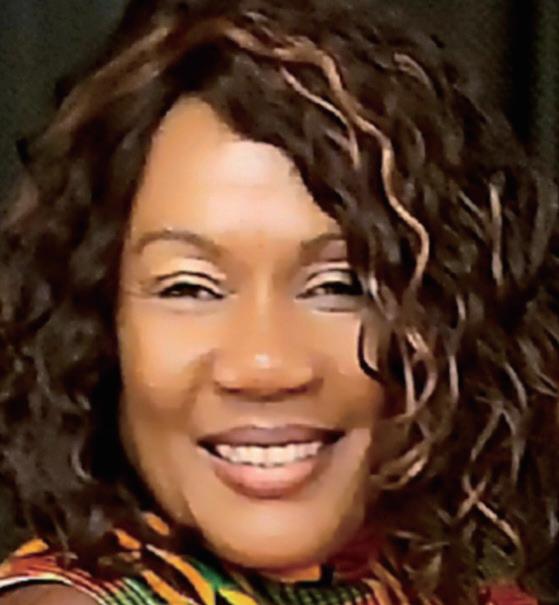
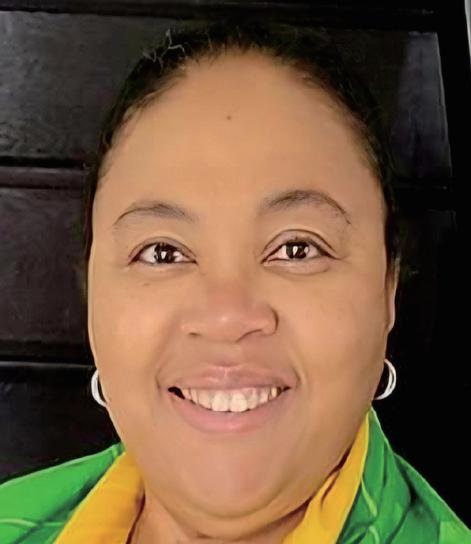


proaches, Brown is bringing back “I Need to Know My Father”, a multi-layered
play with many messages, because – among other things – she believes hun-
dreds more ought to see it, including an “untapped market of youth”.

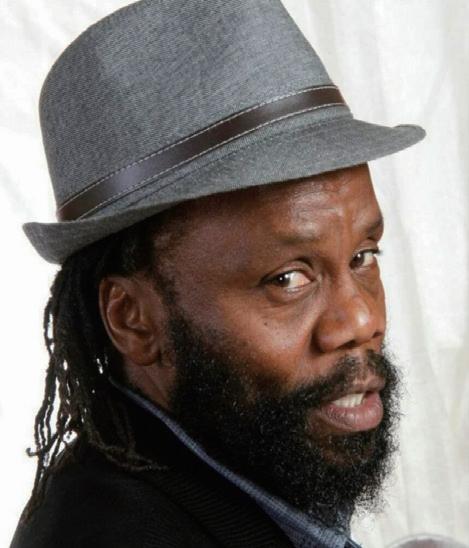
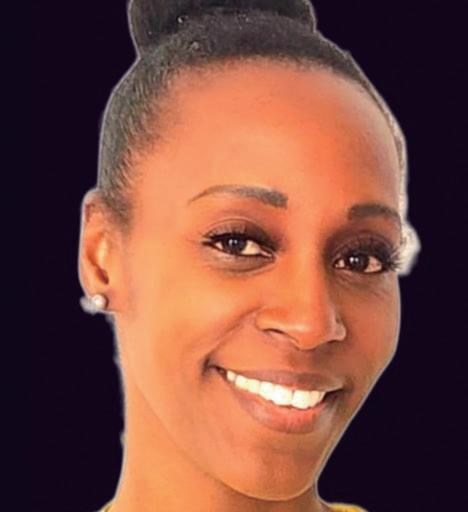
“I have a steady stream of supporters who would come and look at my play, no matter what mi ah do. But I would love for the younger people to start coming out; the late 20s, early 30s – that sort of age group,” Jamaica-born Brown said.
“They want to go out but they haven’t been exposed so much to this sort of theatre. They would go to comedy shows and reggae shows and stuff like that; but I want to get them to come to a play.”
“I Need to Know My Father” is produced by Brown’s company, Marcia Brown Productions. She is not only the playwright and producer, but also has an acting role.
Her stage character is “Louise Perkins” – a committed grandmother, great-grandmother, maid and believer in God – who is married to the simple and humorous “Roy Perkins”, who is a deacon.
Veteran actor Errol “Naggo” Morris is cast as Roy Perkins. He and Brown are the only actors who have previously performed in “I Need to Know My Father”
For the other five actors – Krystal Victoria, Tamika Wilson-Brito, O’Neil Taylor, P.K. Radcliffe and Michelle Dolly – it’s their first time in this production.
It’s also the first time they’re working on a theatrical piece by Marcia Brown Productions.
Victoria plays “Lisa Perkins”, the 16-year-old daughter of “Sarah Perkins” (Wilson-Brito) and “Jonathan Bonavitch, Jr.” (Taylor).
The young man’s parents are “Jonathan Bonavitch, Sr.” (Radcliffe) and “Claire Bonavitch”, played by Dolly. Claire shuns Sarah because the
teenager is not of the same social standing as her son.
Brown said the return of “I Need to Know My Father” to the stage already has led to requests from two churches that would like to use it as a fundraiser later this year.
“There are moments in theatre history worth repeating, usually where the message and audience resonance are so great, we cannot get enough,” Brown said of the play, describing it as a “true-to-life dramedy filled with drama and belly-full of laughs”.
The play, set in Jamaica, has a universal storyline and highlights experiences to which audiences can relate, said Brown. They include stereotyping.
“Where you come from does not dictate where you want to go in life,” said Brown, who has been producing theatre in Toronto for more than 20 years.
“The play also talks about classism and honesty. Don’t think you can be dishonest in life and you’re going to get away with it. It will catch up with you,” she added.
Other highlights of the play, said Brown, are the importance of the presence of parents in a child’s life and development and immigration, “with a mother deciding to go foreign (abroad) leaving her children to be raised by a grandmother and not knowing when they’re going to see their children again.
“They are here and they are sending back money but by the time they see the child again, the child is all grown up.”
The play, as a whole, reinforces how very important “theatre as culture” and storytelling are, Brown told Share
By RON FANFAIR
Archdeacon of Grenada, Hoskins Huggins, was disappointed when he learned that a young Sheridan Cyrus’ interest was in dentistry and not in religious studies as he had hoped. However, he still offered him a private scholarship to study overseas.
Huggins used some private donor funds allocated to maintain Anglican schools to send students abroad to pursue higher education.
Now Dr. Sheridan Cyrus, he never forgot the good fortune. Since 2018, he and a team of Canadian healthcare professionals have been providing Grenadians with free oral care.
Dr. Cyrus is part of Smiles Grenada, Carriacou and Petite Martinique whose members offer free dental treatment worth almost C$160,000 to nearly 400 Grenadians.
Vanessa Felix is the organization’s founding president.
“Though I reside in Canada, I am always thinking about Grenada and what I can do to help its people,” said the dental hygienist who left the island at age 14. “I love doing community work and I feel it is imperative for us in the Diaspora to volunteer and give back. When people tell you how much they appreciate you coming to provide free oral care, that gives me joy. Many people here have to choose between going to the dentist and putting food on the table. They just can’t afford it. As long as we can assist, we will.”
The team of about 23 spent 10 days last month volunteering in rural St. Mark on the island’s west coast and at Mont Tout Community Centre in St. George.
To prepare for the mission, Cyrus buys
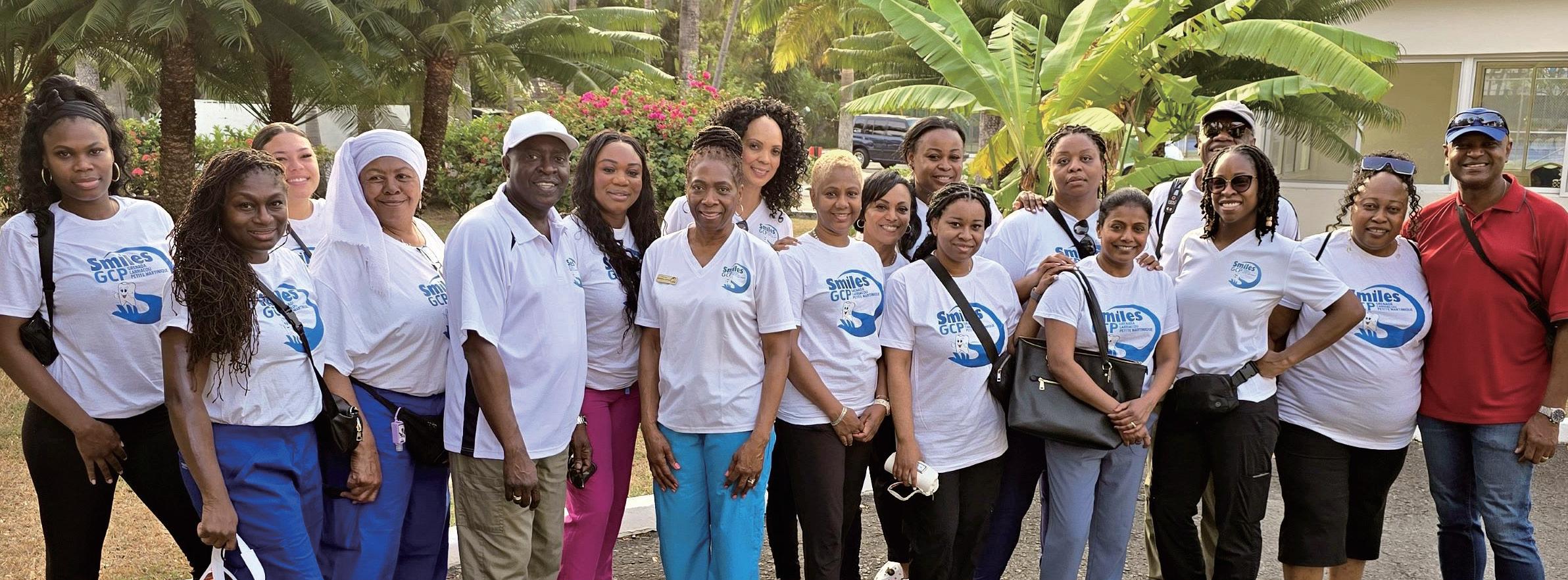
dental carts from China that are shipped to Grenada at his own cost. He also purchased an X-ray machine.
Canadian dental suppliers chip in with free combo pack toothbrushes and toothpaste, and materials for dental fillings.
Money that the organization raised from fundraisers was used to acquire 30 blood pressure machines since elective dental treatment should not be done on a patient with uncontrolled and severely high blood pressure.
The Caribbean’s blood pressure rates rank among the highest in the Americas.
“For those with high blood pressure seeking treatment, it is possible they can suffer a heart attack or even a stroke,” Cyrus said. “In Canada, most people with high blood pressure take the prescribed medicine. This is not the case in the Ca-

ribbean. Some cannot afford to buy the medication while others are unaware their blood pressure is high. We want to make sure their blood pressure is normal before they see us and we are educating them that they need to seek help if they have high blood pressure.”
Cyrus’ older brother succumbed to a stroke and some of his family members have high blood pressure, diabetes and other ailments.
“I want to see an improvement in all aspects of life in Grenada and that includes health,” he said. “This (current) government and the previous one have been very supportive of the work we do here.”
On the first visit six years ago, the team did outreach in Gouyave in St. John.
“What we noticed there was that many children had not seen a dentist,” said the
Church of Scientology member. “They had a lot of cavities that were filled and I did several extractions. The next year in St. David, we did not have that issue.”
Registered nurse Doreen Alexander learned about the mission through SCD hygiene director Kelvin Cameron.
“My husband (Chris Alexander) migrated from Grenada and I thought it would be a good opportunity to go to his birth country and give back,” said the Sickle Cell Awareness Group of Ontario former president and vice-president. “When I told Kelvin that dentistry is not my specialty, he said they needed a nurse. I explained to him that my focus is on infection prevention and control in my role at North York General Hospital and I could be part of the mission to ensure that the dental


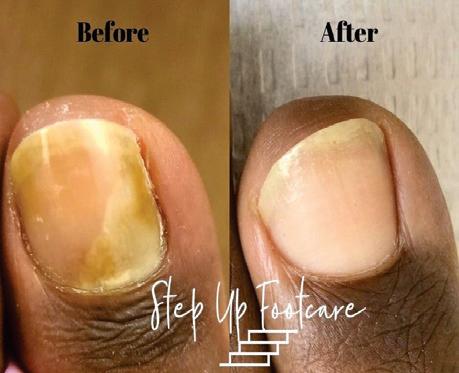









By RON FANFAIR
Toronto Metropolitan University has welcomed the first cohort of Guyanese students enrolled in The G. Raymond Chang School of Continuing Education Full Stack Developer program.
As part of the Guyanese government’s ‘One Guyana Digital Initiative’, 2,000 students will complete the online certification program over two years, gaining the technical skills and practical experience needed to excel as web and software developers.
Students will take four courses covering end-to-end development – full stack developer, python programming, design for mobile devices and user experience design.
“The program focuses on system development and data analytics,” said Mihal Miu, a contract lecturer at The Chang School who helped design the program. “The four courses included in the certificate cover the tools, programming languages and applications that are most in demand when an individual is being hired for a full stack developer role. We know this through consultations with employers across all industry verticals.”

The courses will offer hands-on practical experience to students, making sure they are career-ready upon completion of the program. Virtual mentorship and peer support will also be available for them to seek advice on full stack course assignments, final projects and career opportunities. Students will have full access to all the resources and supports TMU offers, including the library and student counselling services.
The Ministry of Local Government and Regional Development in Guyana selected the 2,000 learners who will attend the certificate program.
The selection was made based on the Guyana government’s diversity targets for race, region and gender.
A total of 50 per cent of the spots were reserved for women and 25 per cent for Indigenous students. The remainder is proportionally represented by the 10 administrative regions.
“The Chang School’s highest priority is to respond to the needs of continuous learners across Canada and internationally,” said Linda Koechli, Interim Dean of The Chang School. “It is a privilege to help Guyanese students strengthen their skills and knowledge in an in-demand area that is directly applicable to the global market. Though helping them reach their career goals, we are confident that this partnership will make a difference in people’s lives.”
Noted educator Karen Hudson, whose exceptional commitment over several decades to post-secondary learning for African Nova Scotians, has been conferred with an honorary degree by Saint Mary’s University in Nova Scotia.
As Principal of Auburn Drive High School in Dartmouth, Hudson demonstrates visionary leadership. With a Bachelor of Arts in International Development, a Bachelor of Education and multiple master’s degrees, Hudson brings a wealth of knowledge and expertise to her role.
In 2018, she pioneered the first Africentric Cohort in math and literacy within a public school. This groundbreaking initiative aimed to empower students by infusing Afrocentric concepts into the curriculum.
A year later, the Learning Partnership recognized Hudson as one of Canada’s Outstanding Principals for her innovative work. She has actively assisted in expanding Africentric Cohorts to other Nova Scotia institutions, includWoodlawn Citadel High.
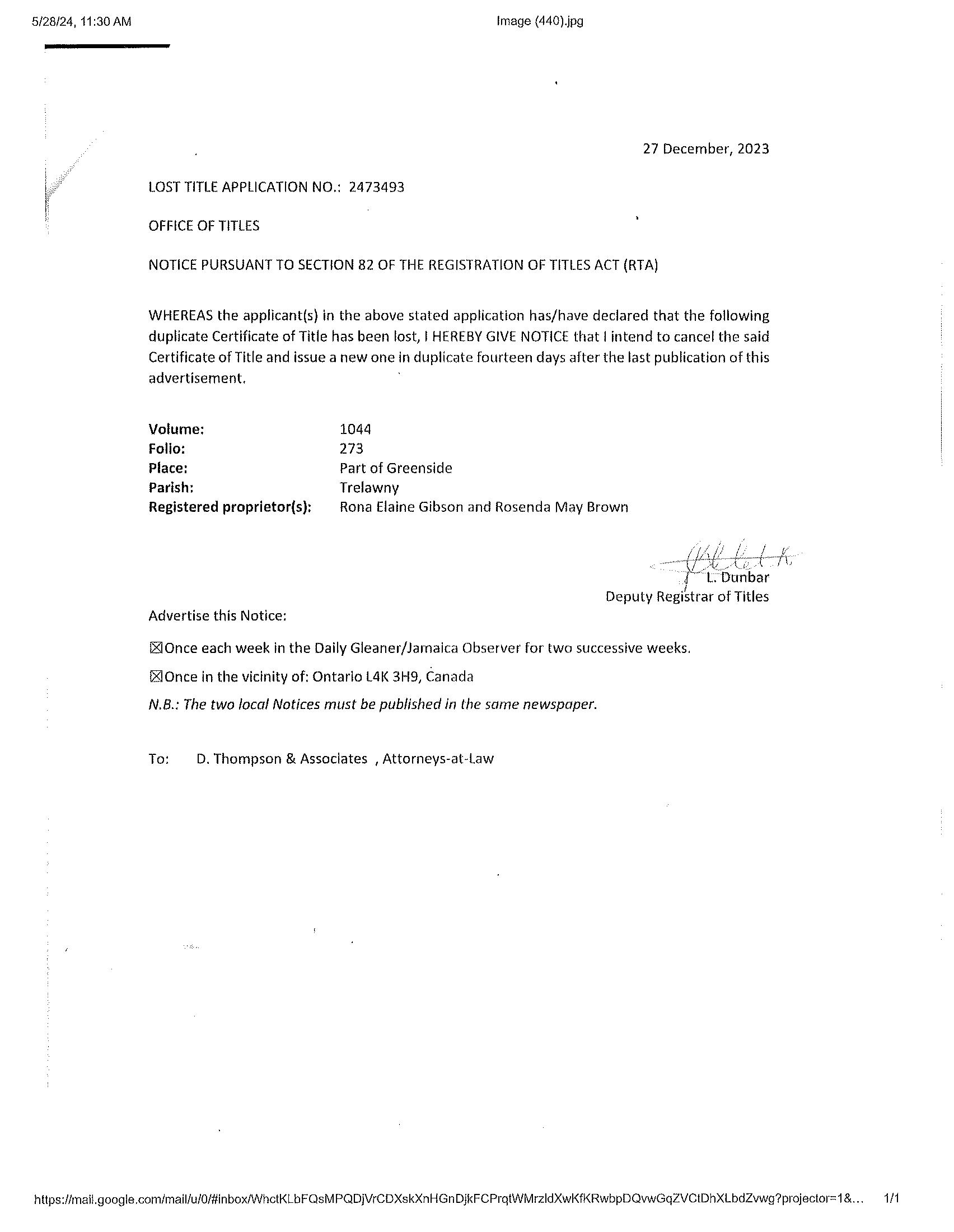
Beyond her educational leadership, she is deeply involved in community engagement. She has received the Nova Scotia Teacher’s Award, the Provincial Family Award and the Queen Elizabeth II Diamond Jubi-
Her passion for social justice, youth leadership, and international development drives Hudson’s active participation in various organizations. She is Interim President of the Black Educators Association (BEA) and volunteers with the Africentric Learning Institute (ALI), Black History Month Committee,

Indigenous and Mi’kmaq Initiative (IBM), and Cherry Brook United Baptist Church. She is also the former African Nova Scotian representative for the Public School Administrators Association of Nova Scotia (PSAANS). Her groundbreaking work in Afrocentric math programming has positively impacted African Nova Scotian students, including those at Saint Mary’s. Her commitment to addressing inequality, social justice, historical erasure and educational disparity demonstrates her leadership and integrity.
“Ms. Hudson’s long record of professional accomplishment reflects her commitment to academic growth, intercultural learning and diversity excellence,” said the university’s President and Vice-Chancellor Dr. Robert Summerby-Murray. “Her dedication to educational equity and community service exemplifies the values of Saint Mary’s University, and her impact on students’ lives is immeasurable.”


By ARNOLD A. AUGUSTE, Publisher/Senior Editor
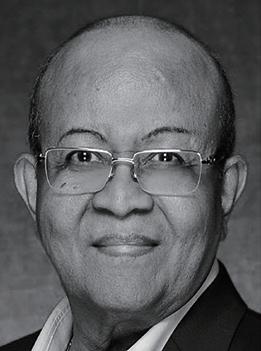
Someone called me recently to remind me of an article he said I wrote about 30 years ago in which I suggested that in order to be promoted on the police force one had to be a member of a Lodge.
I don’t remember writing that article but it sounds like something I might have written. I know I would have said that my understanding is that one had to be Irish in the early days in order to join both the police force and the fire services.
As a bit comedian Bill Maher used to do on his HBO show, Real Time with Bill Maher, “I don’t know this for a fact but I know it’s true”, it does ring true to me and no one has ever disputed it.
Things have changed over the years. We have had a number of Black officers hired and promoted up the ranks, we have had two deputy chiefs (at the same time) and, of course, a Black chief.
So, why did Supt. Stacy Clarke feel she had no choice but to try to give Black officers in line for promotion a heads-up regarding the questions they would have to face? She claims it was to level the playing field. Which means that, from her vantage point in the upper ranks of the Toronto Police Service, she was aware of inequities that we could only suspect.
Policing is hard. For Black cops, it has been a lot more difficult.
Many are the stories of the virulent racism Black cops have faced from fellow officers with little or no support from the senior ranks if they complained. Add to that, the racism and or disrespect some
have been known to face from the general public and the rejection from many in their own community.
An old friend of mine, long retired from Toronto Police, told me of an experience he had as a young cop many years ago. He said he stopped a White motorist for a traffic offence only to have the guy spit on him. He said he reached for his wallet in his back pocket, opened it to look at the photos of his wife and kids, put the wallet away, wiped the spit and continued to write the ticket.
He said the motorist apologized afterwards but that experience never left him.
Sometime last year, we ran a story of an interview Ron Fanfair did with a retired cop, one of the early hires, and while he said he enjoyed being a cop, the one regret he has is that he was not allowed to be promoted to sergeant. He said that would have provided him with a better pension.
The article didn’t elaborate on why he wasn’t promoted but his is a common story throughout the history of our community. There is enough reliable evidence that Black people have not always been treated properly.
There was another article we published in which a former educator who retired as a vice-principal said that although he qualified several times for promotion to principal he was never given that opportunity. We could only speculate as to why that was.
In the banking sector, we have heard stories from Black employees who said that they were required to train new White employees who then were promoted over them and became their supervisors.
There is the mantra that most people from underrepresented communities –women, LGBTQ2S+, Black people and other people of colour – that one has to be twice as good to get half as far. Then when
one gets a valued position for which they are most likely overqualified (you know, twice as good) questions are raised as to whether or not their hiring was fair. Cases like this only serve to reinforce those suspicions.
There is another mantra, usually from those same communities, that we lift as we climb; we don’t pull the ladder up behind us.
That seems to be what Stacy Clarke was trying to do. She wanted to lift up others of her race, just as all those other White guys have allegedly done before her whether they were Lodge members, Irish or just family members. She said she wanted to level the playing field. And there doesn’t seem to be any evidence that she personally benefitted from her actions.
Clarke does not strike me as a stupid per-
son. So, if she felt that the playing field was not level then I take it that it wasn’t (isn’t), in spite of the two former deputy chiefs and the police chief.
There is also the saying that two wrongs don’t make a right. It is never right to do the wrong thing. But that goes both ways. If those in authority have been putting their thumbs on the scales for others as has been suggested, at the expense of qualified Black candidates, that is not right either.
This police service has come a long way over the years thanks to the work of a lot of good people on the service and in the community, but it seems that there is still more to be done.
This case should be a wake-up call for everyone involved.
CONTINUED FROM Pg. 2
“We come from the era of Anancy stories and Miss Lou told all these fantastic stories. You can get laughter out of it but you can learn from it at the same time,” she said. “We can talk about anything on stage and get away with it because we are playing characters; we’re not playing ourselves.”
“I Need to Know My Father”, for those who have seen it, “brings people to tears. People have cried. People laugh until dem weak; dem move from laughing to crying. It’s highly emotional, but it’s highly comedic at the same time,” said Brown, who
started acting in Jamaica. She was a part of the renowned production “Front Room”, performing alongside Jamaica’s King of comedy Oliver Samuels.
The first staging of the return of “I Need to Know My Father” is this weekend, June 15 at 8:00 p.m. and June 16 at 2:00 p.m. and 6:00 p.m., at the Jamaica Canadian Centre, 995 Arrow Road. It moves to Oshawa at 4:00 p.m. on Sunday, June 23, at Eastdale Collegiate and Vocational Institute, 265 Harmony Road. Tickets and information are available by calling 416-843-8787.
At the request of the Attorney General and in accordance with the Justices of the Peace Act (www.ontario.ca/laws/statute/90j04), the Justices of the Peace Appointments Advisory Committee (JPAAC) invites applications for vacant justice of the peace positions in the province of Ontario in the following court locations:
Barrie (Bilingual-1)
Brampton (5)
Brampton (Bilingual-1)
Dryden (Indigenous-1)
Haileybury (1)
Hamilton (2)
Kenora (2)
Kingston (2)
Kitchener (1)
Kitchener (Bilingual-1)
London (Bilingual-1)
Newmarket (2)
Oshawa (3)
Oshawa (Bilingual-1)
Ottawa (2)
Ottawa (Bilingual-2)
Ottawa (Indigenous-1)
Owen Sound (Indigenous-1)
Sault Ste. Marie (1)
Sioux Lookout (Indigenous-1)
St. Catharines (1)
St. Catharines (Indigenous-2)
Sudbury (1)
Sudbury (Bilingual-1)
Timmins (Bilingual-1)
Thunder Bay (1)
Toronto (8)
Toronto (Bilingual-1)
Toronto (Indigenous-1)
Welland (1)
A justice of the peace is an independent judicial officer who presides in court over various proceedings under federal and provincial statutes. This is a full-time appointment that requires travel within the province.
Selection Criteria:
In addition to reflecting the diversity of the population in Ontario, applicants should also display the fundamental skills and abilities, personal characteristics and community awareness attributes set out in the JPAAC General Selection Criteria, including:
1. Skills and/or education that are clearly relevant and transferable to the work of a justice of the peace.
2. Work, volunteer or other experience that is clearly relevant and transferable to the duties and responsibilities of a justice of the peace.
3. An understanding of, and the skills, abilities, and personal characteristics applicable to, the vacancy, including the pace of court, geographic and community needs.
4. Awareness and understanding of the breadth and depth of the role of a justice of the peace.
5. Keen interest in people and humanity, including cross-cultural experience and community engagement.
6. An ability to apply superior interpersonal skills in the courtroom and maintain decorum in adversarial circumstances.
7. A high level of achievement in the area(s) of employment and/or community service.
8. Experience providing functional advice, guidance and assistance to/at multiple levels of authority.
9. Ability and willingness to learn, substantiated through the candidate’s record of lifelong learning.
10. Demonstrated good judgment in the face of real or perceived conflict of interest.
11. Proven ability and experience in making sound, practical and timely decisions with complex factors.
12. Proven reputation for punctuality, reliability, organization skills and preparedness.
13. Highly developed intellectual and analytical skills.
14. Demonstrated flexibility and adaptability to change.
15. Ability to work both co-operatively and independently.
16. Ability to manage people, time, and resources.
17. Ability to present a clear, concise, and well-written application that is reflective of the candidate’s interest and ability.
18. Bilingual ability (if applicable).
For vacancies that serve large Indigenous communities (one vacancy in each of Dryden, Ottawa, Owen Sound, Sioux Lookout, and Toronto and two in St. Catharines), candidates that are Indigenous people and/or people with an in-depth understanding of Indigenous languages, history, law and communities and the issues affecting those communities are encouraged to apply.
To apply for an appointment as a justice of the peace, refer to the current application form and instructions for completion and submission found at www.ontariocourts.ca/ocj/jpaac/ application.
This website also provides information about:
• The advertised vacancies (www.ontariocourts.ca/ocj/jpaac/base-court-description),
• The qualifications to become a justice of the peace (www.ontariocourts.ca/ocj/jpaac/ qualifications),
• The JPAAC process (www.ontariocourts.ca/ocj/jpaac/policies-and-process),
• The role of the justice of the peace in Ontario (www.ontariocourts.ca/ocj/jpaac/role), and
• The JPAAC Frequently Asked Questions (www.ontariocourts.ca/ocj/jpaac/frequentlyasked-questions) which may also be helpful.
Applications must be received by 11:59 P.M. EST on Wednesday July 31, 2024. Late applications will NOT be accepted.
To be informed about future vacancies, please register at Subscribe to Vacancy Notifications (via e-mail) at www.ontariocourts.ca/ocj/jpaac/advertisements/registration.
not part of the event but who was impressed with what we had just experienced caught my attention: “The government changes and all this goes away,” he said.
Black Canadians are no different from any other Canadians. The things that worry them also worry us: the economy, the environment, the spiraling cost of housing, the increasing unavailability of affordable rental accommodation.
Then there is anti-Black racism and all that this means to the upward mobility of Black Canadians.
So, let me get political here for a moment. There is a tendency among voters to tire with political parties and their leaders who have been around for a while. Especially when we are not satisfied with how life is progressing for us. We might feel that giving someone else a chance to take the helm of government might change our fortunes. How bad could they be?
The current federal Conservative Party under Pierre Poilievre is not the old Stephen Harper conservatives or the Joe Clark conservatives or the Brian Mulroney conservatives. Someone referred to Poilievre on social media recently as “an overtly antagonistic and frankly odious alternative…”
Ouch!
While they are doing very well in recent polling against the governing Liberals, there is a fear that they might be too far to the right. If that is true, where will that leave us as a minority community? Are they going to continue the programs aimed at fighting racism, for example?
I would not presume to tell anyone how they should vote except to say that we should be careful that we do not follow the crowd and act/vote against our own interests. What might be good for Alberta, for example, might not be good for us.
Here are some of the programs the Liberal government has funded since coming into office. This information has been gleaned from the government’s website.
● The Supporting Black Canadian Communities Initiative: $200 million to support projects that help Black-led, Black-focused and Black-serving charities and non-profits build their organizational capacity;
● The Black-led Philanthropic Endowment Fund: A $200 million fund that provides sustainable funding to Black charities and non-profits to fight anti-Black racism and improve social and economic outcomes;
● The Black Entrepreneurship Program: $265 million over four years to help Black Canadian busi ness owners and entrepreneurs grow their business es and succeed now and into the future;
● The Mental Health of Black Canadians Fund: $10 million to support Black Canadians to develop more culturally focused knowledge, capacity and programs to improve mental health in their communities;

By MURPHY BROWNE (Abena Agbetu)
Sunday, June 16 is Fathers Day. On that day fathers, grand fathers and father figures will receive cards, ties, shirts, jewelry, artwork from class projects etc., as their children and grandchildren honour them.
African American men, African Canadian men and African Caribbean men are often labelled absent fathers. This began during the Maafa (great disaster/great tragedy 1400s-1800s) of chattel slavery.
African men, women and children were enslaved during the Maafa and the role of the enslaved African father was invalidated. He lived in a society where men were “the head” of their homes, wives and children but he could not easily be a father to his children.
Edward E. Baptist, a White history professor at Cornell University wrote: “the denial of black manhood became central to white manhood.”
The myth of the absent African American father came from the period of enslavement. Libra Rose Hilde, a White American history professor at San José State University published “Slavery, Fatherhood, and Paternal Duty in African American Communities over the Long Nineteenth Century,” and debunked the myth. She wrote: “African Americans were not considered men because they lacked the essential attributes of American masculinity.”
Despite the risks, some enslaved men who had access to their children did play a father’s role in their children’s lives. Some African American men served as surrogate fathers to the community as well as providing tools “to teach their children self-respect and survival and to navigate the dilemmas of authority within the institution of slavery”.
The experience was the same for enslaved fathers in Central America, South America, North America and the Caribbean islands. Following the abolition of slavery some
fathers traveled to the U.S. in search of their children; some who had fled to Canada returned to search for their children.
During the Maafa, the enslavement and upheaval of African people, the family structure was fractured; mothers and fathers were robbed of the ability to parent their children. Despite these circumstances African men persisted against all odds in their fathering roles.
These men were loving, nurturing and protective fathers. There are several written resources by enslaved African men and women as well as a collection of voice recorded interviews with formerly enslaved Africans documenting the positive parenting roles of African fathers during slavery. In her 2005 published book “Black Fatherhood: Reconnecting With Our Legacy” African American author Dana Ross writes: “Black men during this era were dehumanized, humiliated and oppressed, however, it did not deter them from being nurturing, loving fathers, caretakers and entrepreneurs. They were able to rise above the social system set against them by pulling on their inner strength and love for their families.
“Even though some inevitably fell prey to the institution of slavery, there are more than enough documented stories and recorded family histories which evidence the significant and prominent role of Black fathers. These men were able to overcome the adversities of the institution of slavery on the strength of their family; leaving us a legacy to reconnect with.” (https://www.streetdirectory.com/etoday/print_article. php?articleId=ejuffl.)
Many enslaved African men took great pride in their ability to care for their families and sacrificed their lives for their children. Some of these men refused to run to freedom when the opportunity presented itself because it would have meant leaving their children in slavery. There were enslaved men who bought their freedom as well as the freedom of their wives and children.
As we honour fathers and father figures on Sunday, June 16, we need to remember the legacy of those who went before us and set the example as excellent role models.

● The Multiculturalism and Anti-Racism Program (MARP): In recognition of the United Nations International Decade for People of African Descent, the Multiculturalism and Anti-Racism Program (MARP) has included a new priority in its Events component, to celebrate events that recognize the history, culture, accomplishments, contributions and future of Black Canadians and their communities.
The government figures show that some $860 million has been dedicated to improving the lives of Black Canadians. That’s not nothing.
None of this money has benefited us at Share because we do not accept government funding. But it benefits our community. And that’s what’s important. Our community has been left behind for far too long while we were regaled with nice words from our political leaders. Now that those words are being met with action we have to pay attention. It would be in our best interest to ensure that this new attitude towards our community is nurtured and encouraged.
By PATRICK HUNTER
Governments can be frustrating and they frequently are. They can be frustrating for those who support them and for those who didn’t.
In 1990, the New Democratic Party (NDP) was elected to be the government of the Province of Ontario. Bob Rae became premier.
His government focused on instituting a number of policies and legislation aimed at supporting workers, racialized persons and people of moderate or low income.
It was a rough period, economically.
One of the most challenging was the Employment Equity Act, designed to improve the condition of four groups: Indigenous people, women, racialized persons and persons with a disability.
Many of those who supported this legislation and the government’s policies were frustrated because of the delay in implementing them.
In 1995, Rae’s government was defeated, in large part because the unions, which were foundational to the party, withdrew their support because of changes Rae enforced that affected the collective bargaining process.
In came Mike Harris and the Progressive Conservative Party and his “common sense revolution”. They overturned just about every positive policy, repealed every law that Rae’s government had passed. The words “racism” and “racial discrimination”, for example, were removed from general usage within government.
Fast forward to the present. Since the beginning of Doug Ford’s Conservative government, there was a clear indication that his campaign tag, “For the people”, was somewhat misleading. Missing from that line was “certain”, as in “For certain people”. That “certain people”
was limited to developers and other keen friends of the premier who were expecting things to flow their way. He didn’t forget the “little people” though – with dollar beer.
The predecessor to Ford’s government, the Liberals, led by Kathleen Wynne, had instituted a pilot project to provide a basic income. Ford cancelled it. That was just the beginning of Ford’s cutting spree. Just about every government-supported program was cut or reduced. For example, the Fashion magazine reported, at the time, that “…there will be 1,558 fewer teachers for the 2019-2020 school year, and the following year, 3,475 teaching jobs will be cut”.
Ford has had a “love” relationship with the idea of cheap beer, which he sees as the drink of the little people and a means of attracting voter support. He has now decided that he wants beer sold at convenience stores, and for that he is willing to spend millions to break the contract with beer stores.
Back when he was first elected, Ford decided to cut the size of Toronto City Council by half. This was his way of reducing the Ontario government’s costs. At the start of his second term, he decided to make just about every member of his caucus who were not ministers, parliamentary assistants, thus bumping up their salaries from that of a basic member.
Well, he has done it again. Following the last sitting of the Legislature until October, Ford has not only done a surprise shuffle of cabinet posts, he has also created the largest cabinet in the history of the province with 36 ministers.
Conservative governments have a fundamental principle: cut the size of government, cut government spending. Ford seems to have forgotten that part of the playbook. It was good for the City of Toronto, not so much for the provincial government.
By RON FANFAIR
Ruddin Greaves and Michele Gonzales were fatally shot outside Calypso Hut 3 nightclub in July 1997. Greaves, who was 22 years old, came to Canada from Trinidad & Tobago in March that year.
Life has never been the same for Greaves’ mother, Marilyn Ortega, and her family.
“I see someone looking like Ruddin and hear a voice that sounds like him and those things bring back memories,” Ortega said before a Maple Leaf Sports & Entertainment-organized Community Walk in Scarborough on June 7 which is National Day Against Gun Violence across Canada. “I am standing here today to say the feeling of losing one to gun violence is real. Enough is enough. We need love, peace and unity.”
Justin Sheppard was shot and killed while on a footpath near Bloor St. and Rosedale Valley Rd. in June 2001.
“Grief is not an event,” said his mother Audette Shephard. “It follows you all through life. The months of June and February, which is his birth month, are very traumatic for me. My grief is love that has no place to go. You never get over it.”
Sheppard’s stepbrother, retired National Basketball Association player Jamaal Magloire who is a Toronto Raptors ambassador, played an integral role in organizing the event that ended with a Peace Walk from the Birkdale Community Centre to Thomson Memorial Park.
“There are other ways to resolve conflict other than pulling out a pistol and shooting someone,” he said. “I get mad too a lot of times at a lot of people and with a lot of different things. But I have learned different ways of resolving conflict other than killing people.”
In September 2018, Jago Anderson, 19, was gunned down in Scarborough.
“Pieces are being put back together by the grace of God, but it is very, very tough,” said his mother, Lorraine Anderson.
Toronto Police Chief Myron Demkiw attended the event, comforting the mothers and other family members who were the victims of gun violence.
“I want to acknowledge the resilience and strength that so many of you have demonstrated, coming here today to confront gun violence and ensure that your story of loss, grief and sadness is brought to light where there is darkness,” he told them. “Thank you for having the courage and strength to be here with us. I also want to acknowledge that we have here today a reflection of what it is going to take to have real solutions.
“We have the police who go into harm’s way every day. Our members are members of this community. Our members carry pain and grief with them when they respond to these horrible events. We will stand shoulder to shoulder with our communities, ensuring a sense of safety and security while we confront
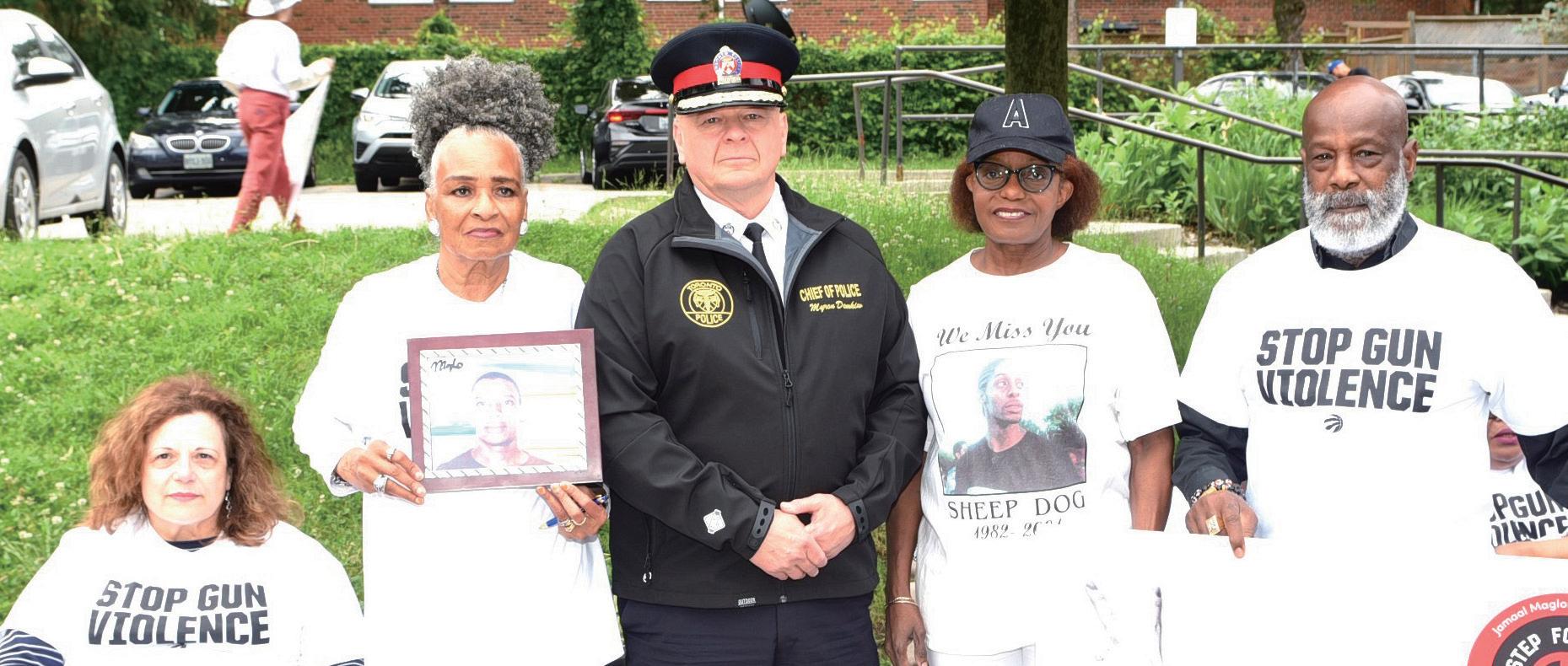
gun violence.”
Demkiw said he was heartened by the large turnout of young people, among them 10-year-old Ethan Williams who did the land acknowledgement.
“You are truly our future,” he said. “We have a shared responsibility to provide for you the opportunity to succeed. You have the power of your voice. Getting your voice heard is the catalyst for long-term
change for all of us.
“Please continue to participate in your communities and always study, of course.” See PRAYER Pg. 12

By RON FANFAIR
Just the other day, Dr. Krissy Doyle-Thomas was reminiscing with her sisters about the times when she lined up her stuffed animals on the bed and, with a ruler in hand, pointed to the wall as if she were teaching them.
Later on, June Doyle would blurt out, ‘Dr. Krissy, Dr. Krissy, your mom is on the phone’.
When she obtained her doctorate 14 years ago, mom reminded her daughter she called it.
Inquisitive and yearning to be in a profession where she could help people and uplift communities, it is no surprise that Doyle-Thomas is making a significant impact supporting individuals in educational and health settings.
“Those two professions have resonated with me as a way of connecting authentically with people,” she says.
Doyle-Thomas was turned on to neuroscience after the youngest of the four female siblings – Eddie-Marie – was born with global developmental delay and had
some complications at birth.
“We knew there would be complications with her development across time,” she said. “We didn’t see that manifest until she began to grow and get older and miss developmental milestones, whether they may be motor, cognitive or intellectual.”
The challenges became evident when the family migrated from Trinidad & Tobago in 1991.
Eddie-Marie was three years old then and they spent a lot of time at SickKids Hospital.
“Countless hours were taken up with folks who were trying to advise us how to support a child with special needs within the academic and school setting because we were trying to learn how to navigate the system,” said Doyle-Thomas. “Being inquisitive, I wanted to know what it meant medically for my sister’s body and her development.”
Neurological conditions are the leading cause of ill health and disability and one in three people will be affected by a neurological disorder.
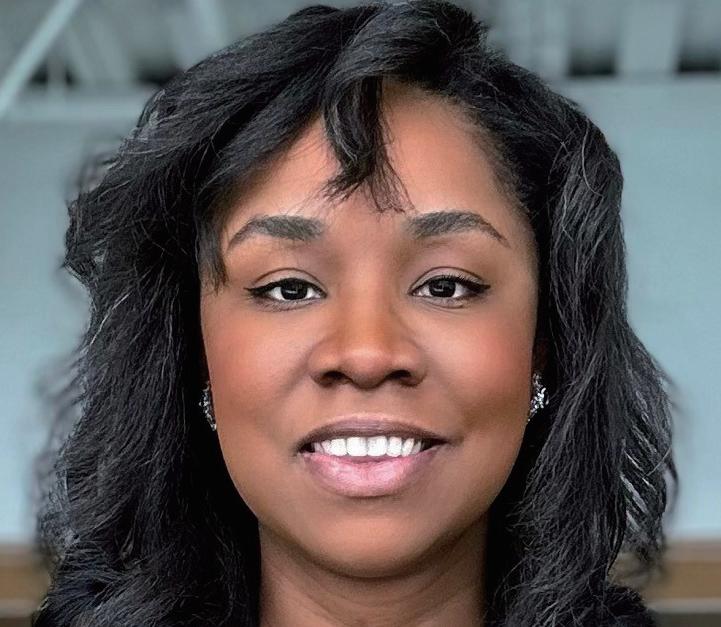
As an independent researcher, Doyle-Thomas is uniquely positioned to translate her field knowledge to help her sister who is seven years younger and assist families who face some of the challenges her family experienced.
“As a child growing up with my sister, the impact was not felt very much other
than this is what I learned in class today and what that sounded like,” the medical neuroscientist said. “I was not in a space within my career that I could have helped at the moment. Now that I am qualified, the impact is greater.
“The brain can change across our lifetime, so our experiences help to train our brain in certain abilities. As our brain matures, things get easier. Helping my sister understand that now things might be difficult because her brain is different, but it will get easier with time the more she practices and leans into the learning.”
As the most complex part of the body and the most complicated object in the world, the human brain fascinates Doyle-Thomas who has published numerous high-impact peer-reviewed articles and has presented her research at conferences nationally and internationally.
“During all of my studies, I have stayed within the brain,” she said. “My biggest interest is how the brain develops and how it looks in childhood-onset disabilities. I See DOYLE-THOMAS Pg. 12
Jamaican-born business and equity-focused leader Wes Hall will serve as the next Chancellor of the University of Toronto. He was elected by U of T’s College of Electors to serve a three-year term effective July 1, 2024.
Hall will be the university’s 35th Chancellor since its founding in 1827.
“As I take on the role of the Chancellor at the University of Toronto, I am deeply privileged and humbled to carry forward the institution’s commitment to diversity, equity, inclusion and advancement, values that strongly align with my personal beliefs,” said Hall who was conferred with a U of T honorary degree in 2023.
“I take on this role with a vision where every voice resonates, every perspective is honoured and appreciated, and every opportunity is open to all, regardless of background or experience. Rooted in the belief that education is a fundamental hu-
man right, this esteemed position is about dismantling barriers and paving the way toward a more inclusive and equitable future for everyone.
“We are living in a diverse world, but there is still more work to be done. Togeth er, let us champion inclusivity, ensuring that the university remains a beacon of excellence, progress and limitless possi bilities.”
Elected for a three-year term, the Chancellor is the ceremonial head of the university, presiding at convocations, con ferring all university degrees and acting as ambassador to the wider community and alumni worldwide. The chancellor also plays an essential role in advancing the university’s interests within the local, provincial, national and international arenas.
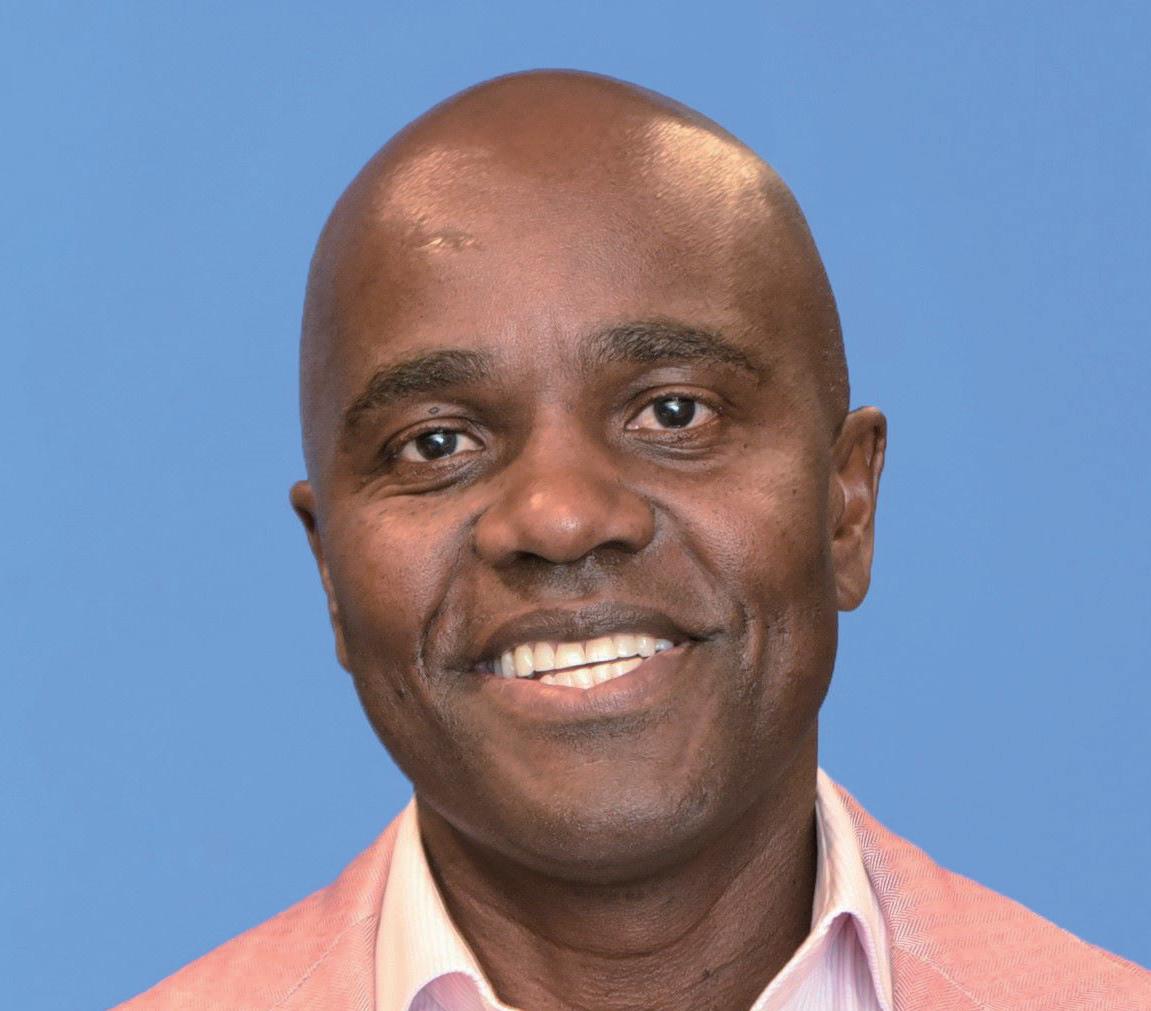
“Dr. Wesley Hall is a widely respected and inspirational business leader and he is deeply committed to creating opportu-
nities for disadvantaged individuals and communities,” said U of T President Meric Gertler. “His professional and personal accomplishments and talents make him eminently qualified to take on the position of chancellor. I am delighted that he has accepted this key role, and on behalf of the entire University of Toronto, I thank him for his willingness to contribute his immense talent and experience to the advancement of our academic mission.”

Hall is Executive Chairman and Founder of WeShall Investments, Kingsdale Advisors and the BlackNorth Initiative. WeShall Investments is a private equity firm with a diverse portfolio of companies predominantly led by BIPOC entrepreneurs.





The BlackNorth Initiative is committed to removing systemic barriers impacting the Black community.
He has improved the lives of thousands of children in the Caribbean and Canada, donating both his money and time. And he has been instrumental in mentoring many of Canada’s Black entrepreneurs and leaders.
“I am delighted with Dr. Wesley Hall’s appointment as Chancellor-elect,” said Anna Kennedy, Chair of U of T’s Governing Council. “Dr. Hall’s remarkable achievements
in the business world and unwavering dedication to empowering marginalized groups resonate deeply with the University of Toronto’s values of equity and inclusivity. He is an authentic leader and a community builder, and we anticipate his transformative leadership will enrich our institution’s culture and the experience of our students.”
In 2021, Hall partnered with the Rotman School of Management to introduce a new course on Black entrepreneurship and leadership, the first of its kind in North America. Developed in partnership with the BlackNorth Initiative, and with Hall as the lead instructor, the course has proven to be highly successful.
Coming to Canada in 1985 to join his father who was a factory worker, he completed high school three years later and rose from a junior mailroom clerk at one of Canada’s top business law firms to become a Relationship Manager at CIBC Mellon, Business Development and Sales Manager at Georgeson Canada where he saw the huge potential in advising on proxy wars and the founder of Kingsdale Shareholder Services that changed its name to Kingsdale Advisors at the beginning of the year.
Hall will succeed Chancellor Rose Patten, whose second term ends on June 30, 2024.
















By RON FANFAIR
Most students in the Caribbean aspire to pursue post-secondary education, the majority of them at the 76-year-old University of the West Indies (UWI) whose alumni serve at every level and in every sphere.
The reality is that many of these bright young people will not set foot on a university/college campus or complete their programs because of a lack of financial resources.
While in Jamaica last March to be inducted into the Immaculate Conception High School Hall of Fame, UWI Toronto Benefit Awards Co-Patron Donette ChinLoy Chang met students preparing for post-secondary education.
“They are excited about their future and they want to go to the University of the West Indies,” she said. “The reality is many will fall by the wayside and do not make it to university because of finances. The question then becomes what percentage will make it to higher education.
“The Caribbean is not poor. However, basic resources are inequitably distributed. A substantial percentage of the population is beneath the poverty line and the emerging middle-class struggle daily, facing insurmountable adversity. Only by the dint of hard work are people able to push through to find a way. Education is seen as a gateway out of poverty.”
Since its inception 15 years ago, the nearly $3 million in funds raised from the annual UWI Toronto Benefit Awards have allowed almost 850 students to pursue university studies at UWI.
“The work we have been doing here has provided a bedrock of hope, a glimmer of life to students whose dreams and aspirations hang in the balance and the chance for them to pull themselves and their families up by the bootstrap,” said Chin-Loy Chang who, with her late husband G. Raymond Chang, started the initiative.
Business executive Kevin Hibbert and his wife Anne-Marie Hibbert are the new Co-Patrons. They attended the event for the first time last year.
“We were troubled by the fact that so many of these young people have to trade off addressing basic food and shelter needs with their desire to further their education,”
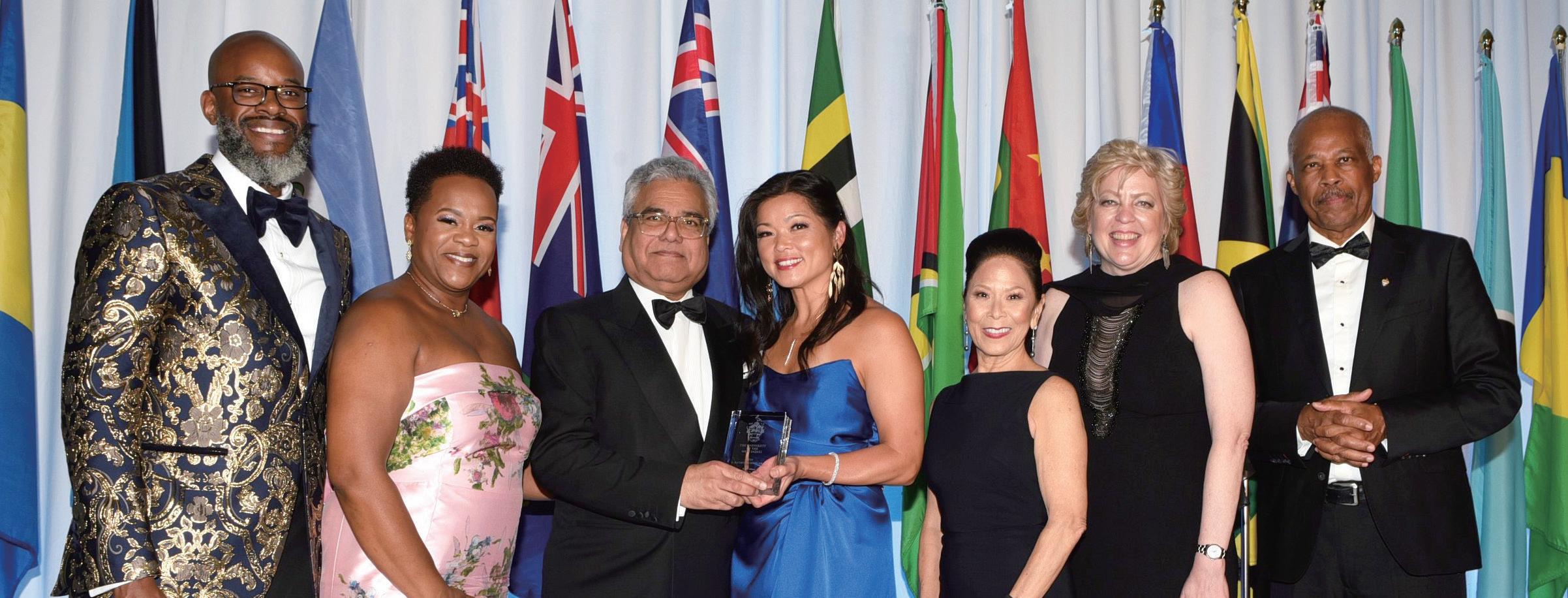
said Hibbert who was the recipient of a Vice-Chancellor Award in 2023. “Many UWI students come from a vast array of challenging situations that have placed them in dire need of financial and moral support to fulfil their dreams of higher education.”
This year’s event theme was ‘Lighting the Way Together’.
“We can all become that match that lights the flames of curiosity, enabling that burning desire to become something greater,” added Hibbert who is the Chief Financial Officer and Senior Managing Partner at Sprott Inc. “That is why we have joined this remarkable team and event that has touched the lives of many Caribbean students.”
Scotiabank has been the event’s lead sponsor from the inception. The bank has had a presence in the Caribbean since 1899 when it opened a branch in Kingston, Jamaica to serve the export trade.
Since 2019, Scotiabank has funded an additional 15 scholarships amounting to US$45,000 annually.
“The scholarships have been a beacon of hope for many students across the Caribbean, many who live in very challenging communities,” said Audrey Tugwell Henry, the President & Chief Executive Officer of Scotia Group Jamaica Ltd.
Last year, Jamaican-born Anya Schnoor, the Vice-President of Caribbean, Central America, Uruguay and International Banking, announced that the bank is increasing its annual contribution from $75,000 to $100,000 over the next five years, beginning in 2024.
“With this reinforced commitment, we are further strengthening Scotiabank’s purpose to help Caribbean students strive and reach their very highest potential,” added Tugwell Henry who is a UWI graduate.
To reinforce the impact of the scholarships, the UWI Toronto Benefit Awards committee brings a recipient to Toronto to articulate the importance of the funds to their lives and other students.
Graduating with a Bachelor of Laws in 2018 from the Mona Campus, Rojae Brown is pursuing a PhD in Competition & Public International Law at the University of Oxford.
Speaking on behalf of UWI scholarship awardees, he said they are extremely grateful for the funds that have allowed them to pursue higher education.
“Many students have not graduated because they can’t afford it,” Brown said.
“Many of them didn’t have the helping hand that I got. I got the scholarship eight years ago and it has made a difference.
The contributions you make often go unnoticed, but it is something we should never ever take for granted.”
Every year, individuals and organizations making significant contributions in Canada and around the world are honoured. Vice Chancellor’s Awards were presented to Pamela Appelt, Stanley Julien, Deland Kamanga and Claudette McGowan.
Canada’s first Black female Citizenship Court Judge, Appelt is an accomplished painter, art collector and supporter of myriad community organizations.
Coming to Canada in 1965, she was a biochemist at Queen Elizabeth Hospital and a researcher in Medical Biochemistry at McGill University in Montreal.
Julien knows the value of scholarships. For five years until 2010, he chaired the Black Business & Professional Association’s (BBPA) Scholarship Fund, overseeing the distribution of over $1 million in scholarships annually to more than 150 Black students across Canada.
As Head of the Special Accounts Management Unit-Canada at the Bank of Montreal, he leads a team dedicated to optimizing economic returns, restructuring distressed businesses and safeguarding and expanding assets within his purview.
By LINCOLN DEPRADINE
As a six-term Toronto councilor, Michael Thompson has chaired committees and initiated ideas to benefit the city, including his constituents in Ward 21, Scarborough Centre.
Thompson, an economics graduate from Concordia University, has led the formation of local community associations, spearheaded the creation of the Wexford Heights Business Improvement Area in Ward 21, and conceived the idea of the “Taste of Lawrence” street festival.
Taste of Lawrence, according to Thompson, “celebrates Scarborough and its diversity”.
The three-day weekend event, now in its 20th year, has attracted as many as 250,000 people, who are treated to cultural performances and local and international cuisine.
This year’s festival is being held July 5 – 7 on Lawrence Avenue, between Warden Avenue and Birchmount Road.
“Soak up the sights, sounds and fla-

vours from around the world,” urged Taste of the Lawrence organizers, inviting participation in this year’s festival.
from every
By RON FANFAIR
In the late 1970s, civil rights lawyer
Charles ‘Charlie’ Roach and his law partner Michael Smith, along with community activist Owen Leach, drove to a Windsor jail to meet Chrysler Canada autoworker Clarence Talbot who was accused of murdering union boss Charles Brooks over an alleged grievance in January 1977.
Fearing he might not get fair representation, Roach and Smith went there to advocate for the amateur boxer who died in 2003.
Before entering the facility where Talbot was held, they ran into local attorney Harvey Strosberg who they did not know was representing the accused who was Black.
When the judge determined that he would not get a fair trial in Windsor, the case was moved to Toronto and Strosberg suggested Edward Greenspan as his replacement. Strosberg also took Roach and Smith before the Law Society of Upper Canada, accusing them of attempting to poach his client.
They hired Peter Rosenthal, then a Math professor who was not a lawyer, to defend them.
“It was a very serious matter because my father was facing severe legal sanctions if he was found guilty,” recalled Roach’s daughter, Kikeola Roach. “The case drew a lot of attention with large numbers of people protesting outside the Law Society building. For as much that was on the line, for my father to choose someone who was not a lawyer to go before the Law Society said a lot.
“Something that was underlying there was an alliance about deep-seated shared

values of challenging the status quo by being fearless in the face of establishment pressure. Led by his sense of justice and skills, Peter was not intimidated and just took it on.”
The charges were dismissed. Rosenthal, who went on to become a lawyer and the Black Action Defence Committee’s (BADC) main legal representative, passed away on May 25. He was 82.
Ontario’s Chief Justice Michael Tulloch learned about Rosenthal while he was in law school in the 1980s.
“I was fascinated by the fact that here was a math professor who was working voluntarily with Charles Roach and Michael Smith on legal cases, representing primarily Black men in inquest hearings,” the former Canadian Association of Black Lawyers
president said. “Peter was not a lawyer at the time, but he had a passion for the Black community even though he was not from the community. Throughout his legal career, he was a beacon of hope for many. His tireless advocacy and profound empathy in court, his strategic acumen and his passionate defence of human rights earned him a reputation as a legal icon within the justice system.”
Tulloch, President of the Court of Appeal for Ontario, said that Rosenthal’s contributions extended beyond his courtroom victories.
“He was a mentor, teacher and an inspiration to countless individuals who sought to follow in his footsteps,” he said. “His legacy is reflected in the lives he touched, the injustices he fought against and the enduring impact of his work on the Canadian legal landscape.”
The son of a social activist mother who fought against nuclear armament and racism, Rosenthal took part in the Woolworth lunch-counter sit-ins in 1960 in New York where he was born and raised before coming to Canada in 1967 to take up a position as an assistant math professor at U of T.
Though a brilliant mathematician, ‘the red diaper baby’ was quick to act when he spotted an injustice.
A few months after he arrived in Canada, Rosenthal was arrested in downtown Toronto while delivering a speech, protesting the United States’ role in the Vietnam War.
Charged with obstructing a police officer and inciting a disturbance, he fired his young lawyer and represented himself at the trial where he was convicted of a charge that was later overturned on appeal.
Rosenthal also represented 26 others who were charged in the demonstration outside the United States Embassy.
Becoming very interested in the law, he volunteered as a paralegal representing friends and activists. When the Law Society threatened him with practicing without a license, he hired Roach as his legal representative. The Law Society abandoned its action after Roach moved a motion to move the disciplinary proceedings to court.
Encouraged by Roach to go to law school, he was admitted to the University of Toronto in 1988 at age 47. Rosenthal then articled with Roach before being called to the Ontario Bar in 1992.
In addition to acting as counsel for BADC, he represented Black and visible minority families in several high-profile inquests. The cases include Ian Coley, Raymond Lawrence, Michael Eligon, Henry Musaka and Faraz Suleman who were shot by police.
“Peter was an unusual character in that he was very consistent over a long period of taking up many cases that hit the Black community at its core,” Kikeola Roach said. “He was one of the lawyers that probably did more inquests trying to seek systemic changes to the policing system than any other lawyer in this country. He was solid in his beliefs and principles, living those out through his work. He abhorred any abuse of power and was interested in making systemic change.”
Rosenthal, who did a lot of pro bono work, worked with Charles Roach from 1975 to 2012 when the Trinidadian-born lawyer and activist died.
See ROSENTHAL Pg. 15
By LINCOLN DEPRADINE
It was via a short note – 152 words – on Facebook that many people in Trinidad & Tobago, Canada and other parts of the world first heard the news last Thursday that former Toronto-based calypsonian and entertainment promoter Elsworth James had died.
“With profound grief the family of Elsworth James announces the death of our beloved patriarch. Elsworth, known fondly as Father James, was a loving father, grandfather, relative and friend. We know the community shares our sadness as he was loved by many,” said the note from James’ wife Margaret and other family members.
There was a time when “calypso in Toronto meant Elsworth James”, performing artiste Henry “Cosmos” Gomez told Share. “He was a star promoter and a man of ideas; always, always with ideas. His passion for calypso knew no bounds.” Gomez, a former Canadian Calypso Monarch and current president of the Organization of Calypso Performing Artists (OCPA) described James as “a great mixture of charm and aggressiveness”.
“As a promoter and an impresario, Elsworth had that something about him that got people’s attention; that got people to come his way.”
James was dropped off as a latchkey kid in Trinidad after his mother died in St. Vincent. And, although he was widely known for his association with calypso and soca, it was not the genre into which he initially launched his music career.
He attracted attention in 1970s Trinidad as a pop musician and as co-founder and a vocalist with the bands “Succession” and “Double Feature”. Calypso and

soca singing would come later.
It remains a seminal moment in Caribbean music promotion in Toronto when James and his wife formed a production company to promote calypso globally.
The company booked some of the best Toronto venues to host its shows, including the Molson Amphitheater, Lamport Stadium and the Metro Convention Centre.
The artistes contracted to perform were a virtual list of who’s who in Caribbean entertainment with Canada-based entertainers sharing the stage with performers such as Swallow of Antigua; Ajamu of Grenada; Jamaica’s Beenie Man; Vincentians Becket and Winston Soso; Gabby of Barbados and Trinidad & Tobago’s Superblue, Machel Montano, Roy Cape, Lord Kitchener, Sparrow, Shadow, David Rudder, Drupati, Ricky Jai, Calypso Rose, Ronnie McIntosh and Crazy.
James “stands at the very top” of calypso and events’ promotion, Gomez said.
“From OCPA’s point of view, we owe him a debt of gratitude because he gave a number of Canadian calypsonians the first break on a big stage. He gave me my first break on the big stage. He put me alongside people like Ajamu and Mighty Sparrow, Shadow and Denise Plummer.
“He was very instrumental in bringing big names to Toronto to make sure that we, in Canada, got a good taste of what was happening in calypso. It’s difficult to name any big-name calypsonian, especially within the last 15 to 20 years, that Elsworth didn’t bring to Toronto. And he didn’t limit it to Trinidad; he mixed it up and included other islands such as Grenada and Barbados.”
“You got to give the man his credit,” Gomez said. “As far as Canada is concerned, there’s no one else who comes even close to Elsworth James when it comes to promoting calypso. He brought the big names to the city, but he did not neglect the Canadian calypsonians and we’ve got to be really thankful for that.”
James, from having a high profile on the entertainment promotion circuit in Toronto, seemed to have disappeared to many friends and supporters, until the family went public in late 2020 disclosing that James was diagnosed in 2017 with dementia. James, his wife said, wanted to keep his illness “private”, and she “wanted to protect him”.
James said at the time: “I have the love and support of my wonderful wife and children, who are taking great care of me”.
James, as a calypsonian, has had several memorable compositions including “I Love Calypso Music”, “Pan from Heaven”,
and the 1984 “Afeisha” – a tribute to the birth of his daughter of the same name.
“Caribbean culture has grown to what it is today because Elsworth James planted those seeds,” said daughter Afeisha James-Kipps. “He gave a platform to many entertainers who otherwise would never have been seen and, potentially, never would have reached their international greatness and potential.”
Gomez said one of his favourite songs is “Minister Farrakhan”. It was written by James, who sang it with Liberty Silver.
“One of his most outstanding achievements, for me, was his tribute to Farrakhan,” said Gomez, who referred to James as “a very strong community person and a very proud Black man”.
Trinidad-born Jai Ojah-Maharaj, a broadcaster who has promoted calypso and Caribbean culture on Toronto airwaves for more than four decades, shared similar sentiments on James’ personality.
“He was humble yet brash, but very focused on promoting the calypso and soca arts. Nothing separated him from promoting calypso and soca,” Ojah-Maharaj said in an interview with Share
James’s family, in the Facebook posting, encouraged friends and supporters “to remember Elsworth for his work to elevate calypso music, and his own electric performances. But, most of all, remember his 1,000-watt smile, his grace under fire and his love for community. Elsworth’s life was a blessing and his memory is our treasure”.
They promised that “funeral details will be announced as soon as they are available.
“We appreciate all expressions of support but we ask for a little time to come to terms with our loss as a family”.
By RON FANFAIR
Told by a guidance counsellor she was not good enough to attend university, Marva Wisdom cried bitterly.
Once the crying stopped, she vowed that was the last time anyone would question her self-worth.
A member of the Ontario Advisory Hon ours Council for several years, Wisdom recognized the number when the phone rang late last September.
Her first thought was they were checking to see if she would return to the Council that considers nominations and recommends candidates who merit volunteer honours.
“Over the years, I have over-extended in my volunteer work and my mentors and others who care about me kept saying, ‘You have to learn to say no’,” she said. “I was ready to say no when I answered that call and explain why I couldn’t come back.”
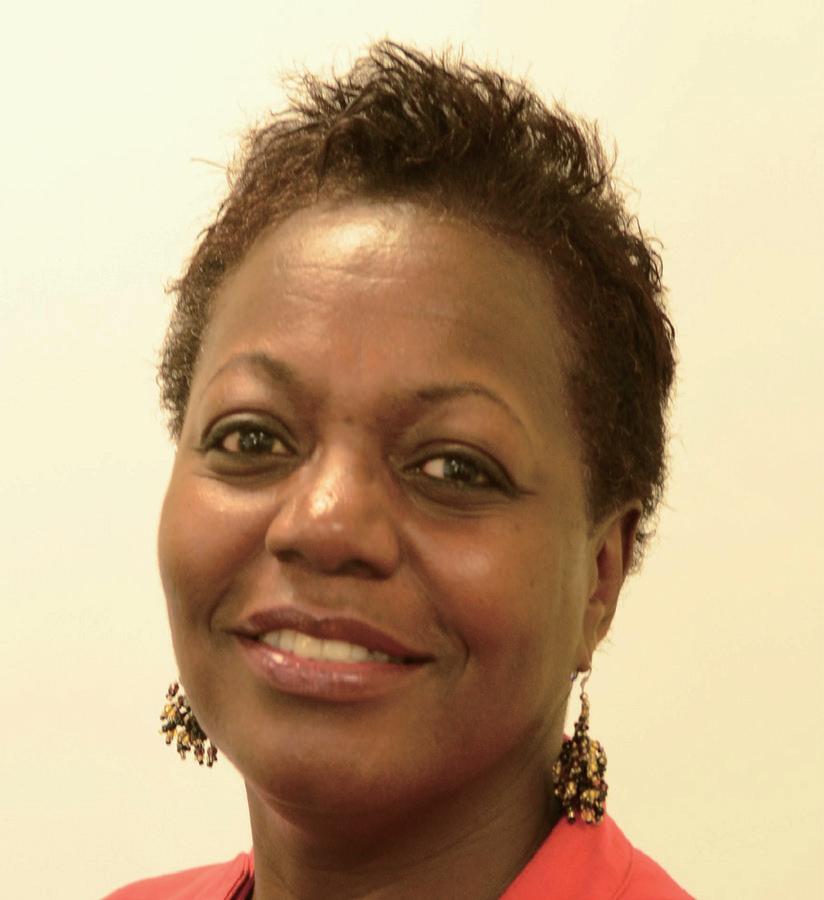
A few seconds into the conversation, the caller revealed that Wisdom was being invested in the Order of Ontario.
“I could have fallen off my chair,” Wisdom recalled. “I was so deeply overwhelmed.”
Retired Toronto District School Board
Superintendent Marguerite Campbell was the lead nominator. She met Wisdom in 2015 at the 12th annual Guelph lecture titled, ‘On Being Canadian’
“Marva and I were the only two Black women in the room,” recalled Campbell who is a Laurier University and Ontario Institute for Studies in Education instructor and Practicum Co-ordinator.
“When she arrived on stage to do an insightful thank you to the speaker, I decided I should speak to her as I had been considering a move to Guelph. She was welcoming, wonderful and willing to share the complexities of the city, the relationships
that she had developed in the city and how her work was making a change and impact.
“I did move to Guelph a few years later and it was then that I began to understand Marva’s impact on not just the City of Guelph, although that was extensive, but also her impact on the province and the country. The connections that she has made and continues to make are causing ripples in our province.”
Established in 1987, the Order of Ontario is the highest provincial honour bestowed on an individual.
“She is an Ontarian who has shown the highest level of excellence and achieve ment in any field and whose impact has left a lasting legacy in our province, our country and around the world,” added Campbell who is a Canada Black History project and Kensington Market Jazz Festival board member. “It is important for the prov ince to honour a woman who has worked

tirelessly for so many causes, peoples and organizations.”
University of Guelph Chancellor Mary Anne Chambers said Wisdom’s lifetime of contributions to the betterment of others has been deeply rooted in her desire to achieve a more just society for people who identify as Black.
“She has done so in uplifting ways by helping to showcase history through an emphasis on our strengths, shining a light on our many positive achievements while acknowledging our struggles,” said the former Member of Provincial Parliament.
“Her generosity of spirit is a model for all who seek a more caring world and one that encourages respect for all.”
Paul Martin, Canada’s 21st Prime Minister from 2003 to 2006, also supported Wisdom’s nomination. They met after she started volunteering in politics in the 1993 federal election.
After Guelph-Wellington Liberal candidate Brenda Chamberlain’s win in Jean Chretien’s landslide victory, Wisdom and
appreciation party.
“As we were setting up the chairs and tables, the riding association president walked in and said, ‘We have to have you on the Board,” the ArtsEverywhere Festival director said. “I joined and took on every role in the party locally. In doing so, I met Members of Parliament and, over the years, was involved at the national level but was unsuccessful in my bid for the party leadership provincially in 2002.”
Encouraged to run for national policy chair, Wisdom did and was successful.
“After that, Paul became the party leader and appointed me to be a platform chair,” she said. “We developed a relationship and had a lot of conversations over the years. When I lost the bid for the federal party’s leadership in Ontario, he called me, asking if I was okay. When I told him I was not because some things were happening in a way that did not connect some of the things he advanced and I let him know some people needed to understand that mission a little better, he said, ‘Let’s talk’.”










intended to research global developmental delay, but that was not a big research area at the time. So, I went into autism which is another type of developmental disability that is anchored in the brain to figure out if there are things I could learn within this field.”
After completing her PhD in Medical Sciences at McMaster University in 2010, Doyle-Thomas accepted a post-doctoral fellowship at Holland Bloorview Kids Rehabilitation Hospital Autism Research Centre.
There, she used Magnetic Research Imagining (MRI) to investigate the brain’s structural and functional properties among those with autism spectrum disorders and how the properties relate to clinical symptoms.
Dr. Evodkia Anagnostou, who two years ago was appointed Vice-President of Research at Holland Bloorview Kids Hospital, and Doyle-Thomas are co-investigators in a multi-million-dollar grant.
“The grant aims to figure out what these childhood-onset disabilities look like from genetic, brain and phenotypic and see if there are profiles, regardless of diagnosis, that cluster groups of kids in a way that makes certain treatments more effective for them,” said Doyle-Thomas who was Anagnostou’s first post-doctoral Fellow mentee.
“My role is to lead a national survey understanding what marginalized communities want out of research. What we have found is that a majority of our data from the over 4,000 kids in the program are from affluent families that don’t look like the cultural diversity within Canada. We have a lot of data about one type of cultural group. We don’t know about marginalized communities. Hopefully, the research will help to inform best practices that we can apply to our research. Once it is published, other researchers can use that within their practices to work collaboratively and respectfully with these marginalized communities which all have kids with the same diagnoses. They are not just tapping into the resources in the same way that, maybe, a White family might.”
Since November 2016, Doyle-Thomas has been a professor at Mohawk College where she co-developed and teaches Ontario’s first graduate certificate programs – Brain Disorders Management and Mental Health & Disability Management.
“Not only do we have domestic students who have health-centred backgrounds, but we have a lot of international medical professionals in the program,” she said. “What I love most about teaching is those conversations within the classroom where that diversity in experience makes the discussions much richer.
“As a lifelong learner, I am learning from them. That kind of collaborative space within the classroom is exciting for me and it fuels much of my research because I have that diverse thought from within the classroom having me think differently about where the gaps are that we still don’t know in this space and how can we support answering those questions.”
Dr. Anne-Marie DePape, Mohawk’s Associate Dean of Allied Health, invited her to join the college staff.
“What is great about these two programs is that, especially within the brain disorder management program, we help folks understand neurological conditions across the lifespan from childhood into brain injury and neuromotor and those disorders that are neuro generative,” said Doyle-Thomas who, in 2022, was listed among the top 100 Accomplished Black Women in Canada. “Over time, the brain degenerates and we get things like Parkinson’s, dementia and ALS.
“Similarly, in the mental health and disability management program, we talk about co-diagnoses. Someone might have a mental illness as well as another health diagnosis. How do we understand those co-diagnoses and how do we support those folks within the interventions and treatments that exist? Someone might have dementia and depression. How do we support those individuals who have more complex needs?
“With these two programs, we are trying to support community-based health professionals to understand the theory behind
A day earlier on June 6, Demkiw joined faith leaders and city politicians in a walk in Etobicoke in the wake of violent shootings in that community.
On June 2, officers responding to a mass shooting found five victims suffering from gunshot wounds. Two of them succumbed to their injuries.
A day earlier, a 20-year-old man suffered multiple gunshot wounds near Martingrove and Albion Rds. while a 14-year-old boy exiting an apartment building near Albion and Richgrove Rds., was randomly shot.
“What we are seeing here today is the power of unity that comes through faith and believing in something bigger than one’s self no matter your faith,” Demkiw said. “Today, the community has come together in prayer in order to help us heal and find a path forward through these challenging
times. I hear from the community grief and pain, but I also hear strength and resilience.”
Community resident Desiree (last name withheld) said the Prayer Walk is essential.
“In the last few days, there has been a lot of tension,” she said. “Everyone is here today, but what happens in the long run. We need more presence and solutions.”
Reverend Andrew King, who with Reverend Carmen Lewis co-lead the Etobicoke Strategy that has seen 23 Division neighbourhood officers and Black faith leaders walking through Etobicoke, meeting community members and engaging them in prayer every month for the last 24 years, said faith leaders will always be there for the community.
“When we hurt, we all hurt,” he said. “When we are in pain, we all are in pain. We are here today to let the families know that we care.”
these conditions and how to support them based on evidence-based practices which is research.”
The programs also address strokes that are triggered by lifestyle choices and conditions that weaken or damage arteries, causing clots to form.
“It is a leading cause of disability within the community and an area that a lot of our community agencies are supporting folks with,” said Doyle-Thomas who was the recipient of a Centres for Leadership (CfL) grant to examine the feasibility of using near-infrared spectroscopy (NIRS), an inexpensive, portable, non-invasive imaging tool, to detect the cortical pain response in children with ASD.
Featured in CBC’s HERstory in Black which was an initiative that celebrated Black History Month and Canada’s 150th anniversary celebration in 2017, the University of Calgary Health Sciences Master’s graduate is collaborating with DePape and Mohawk’s Multi-Sensory Lab Technologist Kaela Millar on investigating the impact of Multi-Sensory Environments on well-being in individuals with Acquired Brain Injuries.
Doyle-Thomas is also at the centre of Mohawk College research to advance inclusive mental health support for Black Canadians who face myriad barriers to accessing mental health services, including stigma, financial constraints, challenges securing family doctors, lack of culturally sensitive care and systemic issues within the health care system that perpetuate inequities.
She is leading the applied research project that involves Black community stakeholders to offer a framework for a psychoeducation program that will meet Black Canadians’ unique needs.
The federally funded Canadian Institutes of Health Research Planning & Dissemination Grant supports the project.
“Our system is very Eurocentric and defines care in one way whereas, in the Black community, we come from different countries, we have different practices and norms, we have different ways of defining family and we have different barriers, even within the system,” she said. “We even have family structures that impact our ability to understand our symptoms to seek care and to even have culturally sensitive care.
“If we are going to support the Black community, diagnosing and treatment must look like the Black community as opposed to saying we need to fit into a mainstream system that does not always do things that are in our best interest.”
Is there any neuroscience-related problem that Doyle-Thomas would like to solve or study?
The answer is a definitive ‘yes’.
The certified trainer in LivingWorks safeTALK wants to engage in research that will lead to strengthening the community’s understanding that mental health is anchored in brain function.
“My passion right now is mental health,” said Doyle-Thomas, who enjoys reading and binge-watching crime shows with her husband. “I want to better understand and communicate the link between brain health and mental health. We know that any kind of health condition of the body is anchored in an organ. So, we have to know also that the mental health experience is anchored in the function and the structure of the brain.
“So how does brain chemistry affect mental health and how do certain lifestyles influence that chemistry and the way these structures connect more effectively to support well-being? Mental health seems to be quite abstract. How do I feel and what are my thoughts? It makes it very difficult for people to know there are very physical changes that happen within our body that create these feelings, thoughts and emotions”.
With parents leading God-centred lives, Doyle-Thomas relishes the solid foundation they laid.
Eddison and June Doyle split time between the Greater Toronto Area and T & T where the family patriarch – a former Festival Management Committee Chief Financial Officer and financial consultant – is the Chief Executive Officer of Acropolis Medical Centre in San Fernando where he was born and raised.
His wife of 50 years is an author and motivational speaker.
“Just the closeness within our family has been effective for their children,” the distinguished educator and mental health consultant said. “They support our dreams and they open doors for us. If they can’t open doors, they encourage us to think through our approach so that we can broker those connections which is very powerful.
“Growing up, Sunday lunch at the table after church was non-negotiable. That was a tradition and a big thing because we caught up on everyone’s life. That connection has been powerful as we got older. I am very privileged to be part of a supportive family and that has modelled a lot of behaviours I have adopted as my own.”
A member of the Harris Brand Foundation female mentorship team to support women athletes in nurturing their mental wellness and understanding brain-based strategies that promote personal growth and academic excellence, Doyle-Thomas and her husband, Kwesi Thomas, are proud parents of two young boys who are elite athletes.
CONTINUED FROM Pg. 1
with different experiences to lead, and ensuring those voices are reflected in federal policies, programs and services. This is part of our larger work to build more homes and keep them affordable, invest in quality health care, reform our justice system, and make our streets safer in partnership with communities.”
Khera, Minister of Diversity, Inclusion and Persons with Disabilities, described diversity as being “at the heart of what it means to be Canadian”.
The minister, commenting on the 2024-2028 Anti-Racism Strategy, said every Canadian “bears a responsibility to confront racism and discrimination wherever
it persists”.
The strategy, she added, “marks another stride in our collective journey to be united and build a more equitable and inclusive Canada, together”.
As Khera put it, “the heart of the strategy lies within communities across the country, by working with them and investing in them. It was developed through extensive engagement with community leaders, researchers and organizations. Informed by the invaluable insights of thousands of Canadians with lived experience of racism and religious discrimination, it aims to make a marked difference in the lives of Indigenous Peoples, as well as Black, racialized and religious minority communities”.
A few weeks later while passing through Guelph from Windsor on his way to Toronto to catch a flight to Quebec, Martin spent time over dinner with Wisdom to address her concerns.
“I remember the only place I could find open on a Sunday afternoon was a Chinese restaurant close to Highway 401,” the former Ontario Young Liberals Honorary Senator said. “It was just the two of us along with two Royal Canadian Mounted Police officers and two restaurant staff in the establishment. We talked about issues I was passionate about and that included samesex marriage, the importance of diversity and inclusion in the party and Indigenous self-governance that he is passionate about. We talked about so many things and have kept in touch.”
Seeking a better life for their children, Eva Bailey came to southwestern Ontario in 1972 as a domestic worker.
Her husband, Edward Bailey, and their four children at the time, including storyteller Garvia Bailey who co-founded Media Girlfriends and an online jazz streaming service, followed two years later.
The former Co-operators Insurance Company Ltd. and HB Group subsidiary Service supervisor and trainer credits her parents and upbringing in rural Jamaica for much of her success.
“They always punched above their weight,” said Wisdom who spent a year at St. Jago High School on a partial scholarship before arriving in Canada at age 14. “It didn’t matter what they were doing. Though they both quit school early, they found a way to befriend well-educated people. Education means a lot to them. They always sought out people who could help their kids. I also did a lot of church, grew up around many family members and received unconditional love from my grandmothers and aunts. I do not remember a time I did not feel absolute and total love.
“I had a solid base before coming to Canada.”
At first, the transition was not easy. However, classmates gravitated to Wisdom once they figured out she was a bright student and could assist with Algebra. Once she started taking Geometry classes, things took a quick turn.
“I did not do that subject back home, so I did not know what it was,” Wisdom said. “I started getting poor marks and the kids disappeared. That is when you realize you are Black. Some of them even called me names when I thought I was accepted.”
Life became more challenging when her parents moved from Tavistock to Stratford to work and live in affordable housing.
“Nobody knew me at Stratford District,” she said. “One of the other things that made it tolerable for me at the other high school was that I was a member of the Glee Club because I could sing. I had something else to offer besides Algebra lessons. At the new school, there was no Glee Club and I had nothing to offer.”
Because Wisdom struggled with Geometry, the guidance counsellor told her she was not good enough to remain in the academic stream.
“I didn’t understand what that meant and my parents believed at the time that teachers knew best and whatever they said was gospel,” she said. “I agreed to the switch and started getting 90s in all the subjects. I was doing very well. When the time came to select a university to attend, the guidance counsellor said I had to pick a college because my marks were not good enough to get into university. I told her I wanted to go back into the academic stream, but she explained that once I was in the general program, I could not go back. She then proceeded to tell me I was not good to go to university.”
Edward Bailey was livid when he got the news.
“He said no child of mine is going to tell me they are going to sit out and not go to school,” said Wisdom. “He was so mad and angry that I would suggest not going to college or university. Dad did not understand what I was trying to say to him about streaming.”
Reluctantly, she applied to some colleges and selected Centennial because an aunt lived close to Ontario’s oldest publicly funded college.
Though choosing to pursue Childhood Development Studies which was the closest subject area to Psychology that she wanted to do in university, she did not have fun.
“I hated it because I wanted to be in university,” said Wisdom. “After a car accident a year into the program and being wrecked emotionally, I quit.”
She eventually entered university in 2004, completing a Master of Arts in Leadership three years later.
In the nearly two decades before going to university, Wisdom volunteered and was actively involved in politics while working in the private sector. Later on, she engaged in meaningful work to make Canada more open and inclusive.
While Vice-Chair of the Canadian Centre for Diversity, she attended a presentation by Environics Institute President Michael Adams.
“It had to do with immigrants and what they bring to the table and the importance of us understanding their value,” the Rotary Club of Guelph board member said. “He was so respectful in how he conveyed the research information. It was the first time I heard something that was not anecdotal and I was hearing immigrants being perceived through the kinds of lens in how he was sharing it. I gave him my card at the end and thanked him for the presentation.”
A few months later, Adams’ office called Wisdom to say they were working on an urban Aboriginal People study, they had done small Jewish and Muslim studies and they were thinking about doing a project on the Black community.
“I learned they work with communities that are not heard and try to get their perspectives,” said the Macdonald Stewart Art Centre trustee. “They said they would love to chat with me and pick my brain to see if that was something that could be a possibility and, if so, where could they start. They understood I could not speak for my community, but they wanted to know if there would be interest and how that could be found out.”
Launched in 2010, the Black Experience Project (BEP) examined the lived experiences of individuals who self-identify as Black or of African heritage living in the Greater Toronto Area (GTA).
Toronto Metropolitan University and the Atkinson Charitable Foundation collaborated with the Environics Institute on the project.
The research study consisted of in-depth one-on-one confidential interviews with a representative sample of more than 1,500 individuals across the GTA.
In the findings released in 2017, participants believed that many non-Blacks cling to stereotypes, are in denial about anti-Black racism and lack knowledge and awareness of the strengths and contributions of the Black community.
“When asked what they believe are the most common beliefs that non-Black people hold about Black people, all the examples mentioned are negative ones, such as beliefs relating to criminal behaviour, violence, gangs or drugs, as well as the belief that Blacks are uneducated, lazy and lack ambition,” the report revealed.
Wisdom was part of the BEP initiative from the start, serving as project director for the first phase which was community engagement.
Phase 2 involved the research design and execution to conduct an in-depth
survey with a representative sample of individuals within the GTA Black community while the last phase encompassed post-study dissemination and public engagement.
“It is the first study of its kind about our people that … is accessible to any organization that wants the data,” said Wisdom, a former Operation Black Vote Canada advisor. “Also, it was our young people who were an integral part of surveying with people in our community. All of those things make me proud to be part of it.”
A Guelph resident since 1985, Wisdom has made her mark in the community where former slaves settled.
She co-chaired a task force looking at policing in schools, worked with school boards to eradicate racism in their systems and sat on the Guelph Police Service Interview Committee for senior officers.
In 2010 and 2011, Wisdom chaired the Guelph-Wellington United Way campaign that raised nearly $5 million for social services in her community.
She was the founding chair of the Guelph chapter of the Institute of Canadian Citizenship (ICC). Co-founded by Canada’s 26th Governor General Adrienne Clarkson and her husband John Ralston Saul, the ICC delivers programs and special projects that inspire inclusion, create opportunities to connect and encourage active citizenship.
Wisdom is also the founding president of the Guelph Black Heritage Society established after the historic British Methodist Episcopal (BME) Church was listed for sale in November 2011. The sale was finalized a year later.
Built in 1880 at 83 Essex St., the limestone church has been a major part of Guelph’s
Black community.
“To acquire it meant connecting in an important and lasting way with the BME Church Conference of Canada,” the former Kensington Market Jazz Festival board president said. “They could have gotten more money, but we made a compelling case for why it should go to a Black group that we had to form.”
The building was acquired for $400,000. At the time of purchase, there was a $100,000 lien.
“We didn’t know about that until we made the offer and it was accepted,” said Wisdom who is the founding principal of Wisdom Consulting which helps organizations build and enhance their leadership capacity in diversity, inclusion and belonging and a Senior Fellow at the University of Toronto’s Munk School of Global Affairs & Public Policy. “That meant we had to take the lien on as well.”
Renovation of the building was completed last year.
“It has a little library in it and it is just a beautiful space,” the mother of three grown children said. “I was not there for all of this to happen, but I was there to get it started.”
To get money to buy the church and assist with negotiating the mortgage, Wisdom leveraged her relationship with former Royal Bank of Canada Executive Vice-President Charlie Coffey whom she met while she was the Liberal Party of Canada National Policy Chair, and others.
“One of the most important things the Order of Ontario means to me is the people I had the opportunity to meet who have supported my work and I have supported their work because we have so much in common,” she added.

instruments are properly sterilized.”
“In addition, I mentioned that I could guide the team in ensuring they wash their hands and change gloves. As much as you are coming to Grenada to help people, you don’t want to leave infections behind. If that is not done, we could cause Grenadians more harm than good.”
Part of the mission since 2018, Alexander uses one week of her annual vacation and pays her airfare to volunteer on the Spice Island.
“The people of Grenada treat us very well,” she said. “The joy for me is to watch the smiles on the faces of patients after they get their treatment. The hard part is leaving without giving everyone the care they deserve.”
Registered dental hygienist Sydney Murrell has been with SCD for 13 years.
“I love taking care of people and giving back and this is the perfect platform to do this,” said the product of Barbadian and Antiguan parents.
Two massage therapists, including Lydia Koduah-Grindley, were part of the outreach mission. This was her third trip to the island.
Dentists and massage therapists collaborate to identify and manage underlying triggers while addressing muscular tension.
I BUY VINYL RECORDS
CA$H PAID FOR YOUR RECORDS!

“Oral health care can be expensive,” Koduah-Grindley said. “When Vanessa came up with the idea to start this organization, I wanted to be part of it because it is about giving back to those who are not so fortunate. In my role, I let people know how much massage can do for them, especially if they have ailments and are recovering from a stroke.”
While communicating with a friend on WhatsApp, former Grenada prison
CALL (647) 819 7659



officer Paul Thomas learned of the mission. He went to Mont Tout to get some dental fillings.
“What the dentist and his people are doing is very good,” said Thomas. “This is one of the poorer communities and any help the residents can get, particularly when it comes to their health, is very much appreciated. This is a big deal for us.”
Giving back without expecting anything in return comes easily for Cyrus who is a staple in Toronto’s Black community. He hosts an annual barbecue for clients and community members, makes donations to the Malvern Family Resource Centre which he has been affiliated with for nearly 30 years and gives scholarships to the Association of Black Law Enforcers.
Cyrus also financially supports an annual academic award for Dentistry students at Dalhousie University, his alma mater.
When trying to choose an overseas university to pursue undergraduate and graduate studies, it certainly helped that he had an older sibling enrolled at a public research university in Nova Scotia. Dr. Pemberton Cyrus, an associate professor in the Department of Industrial Engineering, encouraged him to come to Halifax.
“He said they had a very good dental school,” recalled Cyrus who was a high school Biology teacher in Grenada.
“As I did my research, I discovered that the only dental schools in Canada accepting international students then were Dal and McGill which had a French requirement for students. The other thing my brother mentioned is that if we stayed together, we could share some costs. That seemed attractive.”
On his first long-distance flight, he arrived in Halifax in August 1983 and completed his studies six years later.
“I enjoyed going to Dal because it’s located in a small community which reminded me of Grenada,” Cyrus said. “On Sundays, there wasn’t anything happening which was just like back home.”
Being a lover of music also helped with the smooth transition. For the entire duration at Dal, Cyrus was a member of the choir that performed at events across the city, including the annual Nova Scotia International Tattoo.
A few months before graduating from dental school, Dr. Trevor Chin Quee – a Jamaican of Chinese heritage who was the head of Periodontics at the time – suggested that Cyrus come to Toronto to practice with Dr. Trevor Mair – a Jamaican who graduated from McGill – who is now retired.
Taking up the proposal, Cyrus landed in Canada’s largest city for the first time in 1989 and, two years later, opened a practice in Scarborough.
The Ashanti proverb: “When you follow in the path of your father, you learn to walk like him,” is an apt reminder. Today we read about African men who, despite the odds, having to deal with racial profiling, the racialization of poverty, lack of job opportunities etc., continue to make sacrifices as they lovingly guide and nurture their children’s physical, spiritual and emotional growth while they also contribute to their community.
The lives of these men are documented in books like “Pop: A Celebration of Black Fatherhood,” by Carol Ross published in 2007 which offers a fascinating look at a group of loving and nurturing African fathers interacting with their children.”
In “Be A Father to Your Child,” edited by April R. Silver
published 2008 which begins with the African proverb “We come here so we may learn to be better ancestors.”
Roberta L. Coles documents the struggles and triumphs of single African American men raising their children in “The best kept secret: single black fathers.”
The beautifully illustrated book “In Daddy’s Arms I Am Tall: African Americans Celebrating Fathers,” is a special tribute to fathers in our community.
These words from the book encapsulates my memories of my father: “In my Daddy’s arms I am tall and close to the sun and warm in my Daddy’s arms.
In my Daddy’s arms I am strong and dark like him and laughing.”
tiakoma@hotmail.com.
CONTINUED FROM Pg. 6 CONTINUED FROM Pg. 6
Based on Ford’s past record, we are unlikely to see the ministerial mandate letters. We, the people, would like to better understand what the government’s program is. How will we know what to expect and how will we know that they are on track to achieving the mandate of their ministry?
If the speculation about a possible snap election comes to fruition, then the mandate letters would be useless.
Ford has had to reverse a number of policies because he was forced to do so by the courts. He wears his reversals and mistakes with an air of “I haven’t done anything wrong”.
And then we look south to the United States. There is a president seeking re-election and, whether or not you agree with his policies, he has acted as you think a president should. He is being challenged by a former president who has been convicted of 34 felonies, lost other cases which spoke to his character and frankly was a failure as

president. Yet, he is likely to be his party’s candidate for president. Unbelievable.
Without trying to be too general, there are reasons to feel frustrated as we survey many of the governments around the world. One can only hope that this is a phase which will end soon, without more damage than has already been done.
Email: patrick.hunter11.gmail.com / X @pghntr


Julien’s extensive banking career with BMO over almost three decades includes Regional Vice-President of Commercial Banking, Atlantic Provinces Division and Managing Director with responsibility for Credit Restructuring, Corporate Finance Division.
He also uses his influence within BMO to get financial support for community organizations.
As BMO Wealth Management Group Head, Kamanga leads the strategic direction for a broad range of businesses, including Private Wealth Canada (BMO Nesbitt Burns and BMO Private Banking), U.S. Wealth Management, BMO Global Asset Management, BMO InvestorLine and BMO Insurance.
He is a member of SickKids Board of Trustees, SickKids Foundation and Women in Capital Markets.
McGowan is a global information technology leader with over two decades of success leading digital transformations, optimizing infrastructure and designing new approaches that improve service and cybersecurity. She founded Black Arts & Innovation Exposition in 2015, writes books for children and builds robots in her spare time.
The Chancellor’s Award was presented to Air Canada that has serviced the Caribbean for the last 75 years. Last winter, Canada’s largest airline flew to 28 Caribbean destinations and operated 320 flights weekly.
Retired Judge Hugh Fraser was the recipient of the Luminary Award. He represented Canada at the 1976 Montreal Olympics, served with distinction as a Provincial Court Judge for 25 years and was the technical advisor to the Dubin Commission of Inquiry established after Ben Johnson tested positive for a banned substance after winning the 1988 Seoul Olympics 100-metre dash in a world record 9.79 secs.
Fraser, whose son Mark Fraser played 45 games with the Toronto Maple Leafs in 2012-13, chaired Hockey Canada’s Board of Directors for a year and was a
Canadian Centre for Ethics in Sport Board Director and Sports Federation of Canada and Commonwealth Games Foundation President.
Former PwC Canada Partner and ViceChair Raj Kothari was presented with the G. Raymond Chang Award which is presented to an individual whose leadership embodies hard work, empathy and kindness similar to the values and ideals that Chang held.
“Ray truly led the way for so many through his life and his influence continues to shine,” said Kothari who is the Chair of the Toronto General Western Hospital Foundation Board of Governors and a Board member of the Investment Management Corporation of Ontario, a $70 billion pension plan in Canada.
“This award is especially meaningful to me because I have always sought to follow Ray’s example as an immigrant who made a significant impact in the community around him. Even if I could be one-tenth of what Ray was, I think I would have achieved quite a bit.”
Ontario’s Chief Justice Michael Tulloch and federal Minister Marci Ien have supported the fundraiser over the years.
“You made your mark and you pushed, sometimes really hard, to open doors,” the Minister for Women & Gender Equality and Youth told the award winners. “It wasn’t easy, but you did it because you knew it was not just about you, but those coming after you. It is about the next generation.”
Vice-Chancellor Dr. Hilary Beckles congratulated the award winners and acknowledged the UWI Toronto Benefit Awards team and the approximately 6,000 supporters that have attended the event in the last 15 years to help shape the lives of future leaders and their communities across the Caribbean.
“Thank you friends for coming to this urgent call for financial assistance to support yet another cohort of bright, creative and accomplished Caribbean youths who, through no fault of their own, find themselves economically impoverished though intellectually very empowered,” he said.
No regional institution has contributed more to the intellectual, cultural, social and economic development of the English-speaking Caribbean in the latter half of the 20th century than UWI which has produced several current and former Caribbean prime ministers and late Nobel Laureate Derek Walcott who graduated from the Mona Campus in 1953.
The late Sir Arthur Lewis, who won a Nobel Memorial Prize in Economics in 1979, was a UWI Vice-Chancellor.
UWI has maintained its stellar position as the number one Caribbean university in the 2024 International University rankings. It is also ranked in the top one per cent of about 2,000 Latin American & Caribbean universities and in the top three per cent of the world’s finest universities. In addition, UWI is the lead advocate on climate change in the world.
“We are who we are,” said Beckles. “We are an elite university in this world, but we are not an elitist university. We are here as a public university for the upliftment of the poor and the empowerment of the historically disenfranchised. We are the engine of Caribbean development and the hopes for democratic justice. The challenge we are faced with is how we continue to expand this university to meet the needs of all of the people of the Caribbean without compromising quality enhancing excellence.”
After in-depth internal strategic planning and discussions with regional education stakeholders, UWI has evolved as a multi-lingual institution.
“For the first time, we have now declared that all students entering the university must acquire proficiency in a language other than English before they graduate,” said Beckles. “Our students have a multitude of languages from which they can choose before they go into the world as mobile young people with the world before them.”
The Open Campus is to be rebranded as the Global Campus that will encompass the International School for Development Justice, a new non-profit entrepreneurial income-generating business school.
Centred within the parameters of the United Nations Sustainable Development Goals (SDGs), it will specifically offer a new product line – SDG focused, postgraduate academic programs delivered in an online format that leverages the excellence and expertise of the traditional Open Campus.
“As from September, we will be enrolling students from all over the world to pursue their master’s program online on the SDG goals to which we are all committed,” said Beckles who is a leading advocate for reparatory justice.
UWI has also expanded the Canada-Caribbean Institute established by Brock University and the University of the West Indies four years ago to connect Canadian and Caribbean scholars.
“Since then, we have had a revolutionary protest from Canadian universities who wanted to know why we chose Brock as our partner,” said Beckles.
He reminded the audience that Major General Isaac Brock, after whom the university is named, served with the 49th Regiment in Barbados and Jamaica before coming to Canada where he died in 1812 while defending this country from a United States invasion.
Toronto Metropolitan, McMaster, Dalhousie and York universities along with the University of Toronto and George Brown College are now part of the joint institute.
“Since the independence era of the 1960s, Canada has been our most reliable development partner and this is the bridge we have to strengthen and expand,” added Beckles who served as an Associate Member of the London University Legacies of Slavery Project and the University of Hull’s Wilberforce Institute for Slavery and Emancipation.
Established in 1948 as the University College of the West Indies in a special relationship with the University of London, UWI’s first cohort comprised 23 male and 10 female students who began their post-secondary journey in wooden huts in Jamaica that once housed war refugees from Malta and Gibraltar.
To honour Roach, he led a successful campaign for a public lane in the city to be named after his close friend. The laneway, close to where Roach’s law office once stood, was unveiled in July 2018.
“It was very easy to get support for this,” Rosenthal said at the unveiling ceremony. “Charlie contributed to fighting racism and other injustices and was fantastic in that respect. He always stood his ground and was courageous about doing so.”
The U of T Professor Emeritus was also part of a group that launched a petition requesting the Canadian Cabinet direct the Minister of Citizenship, Immigration & Multiculturalism to award Roach citizenship without him having to take the oath.
A permanent Canadian resident, Roach vehemently refused to pledge allegiance to the Queen which is a requirement for all citizenship candidates over the age of 14. He lost out on an opportunity to become an Ontario Court Judge because it required the oath that he opposed. He also did not possess a Canadian passport and was unable to vote despite living here for 57 years.
In September 2013, a Judge ruled that taking the Oath is not to the Queen as a
person, but as a symbol of Canada.
Rosenthal and his legal team, which included Selwyn Pieters, appealed the decision to the Ontario Court of Appeal which dismissed it.
Licensed to practice in Ontario, Guyana and Trinidad & Tobago, Pieters said Rosenthal mentored him from the time he entered law school until his retirement.
“As a first-year law student, I worked with him on the Allan Gardens cases,” he said. “As a first-year lawyer, we did Freeman-Maloy v Marsden, Stevens v Conservative Party of Canada and others. I thank Peter for the mentorship and the meetings in the war room that he led which were something for the books. A lot of the learnings remain.”
In addition to Roach, Rosenthal also represented late activist Dudley Laws who was charged with smuggling illegal immigrants across the border into the United States in 1991. Convicted at trial, the Court of Appeal ordered another trial, but the Crown stayed the charges.
“When Peter decided to participate in helping to construct positive Black imagery, Laws and Roach were at the centre of that,” said long-time BADC member Dari
Meade. “Impressed by his consciousness, Charlie recruited him and, in so doing, showed us how we can widen when we interact with other communities, particularly the White Jewish community. He was one of those guys that centred himself in humanity and dignity.”
Social work educator and community activist Dr. Akua Benjamin said Rosenthal was the Black community’s legal backbone.
“That was particularly the case when it comes to BADC,” she said. “There was no
other lawyer that we could call at a moment’s notice when we had an issue. He stayed through thick and thin. You could always rely on him.”
Rosenthal’s selflessness caught the attention of retired teacher and community organizer Lennox Farrell.
“He was also someone who kept his word and took on community work in the way some take on their profession,” he said.
Rosenthal is survived by his wife, Carol Kitai, and five children



